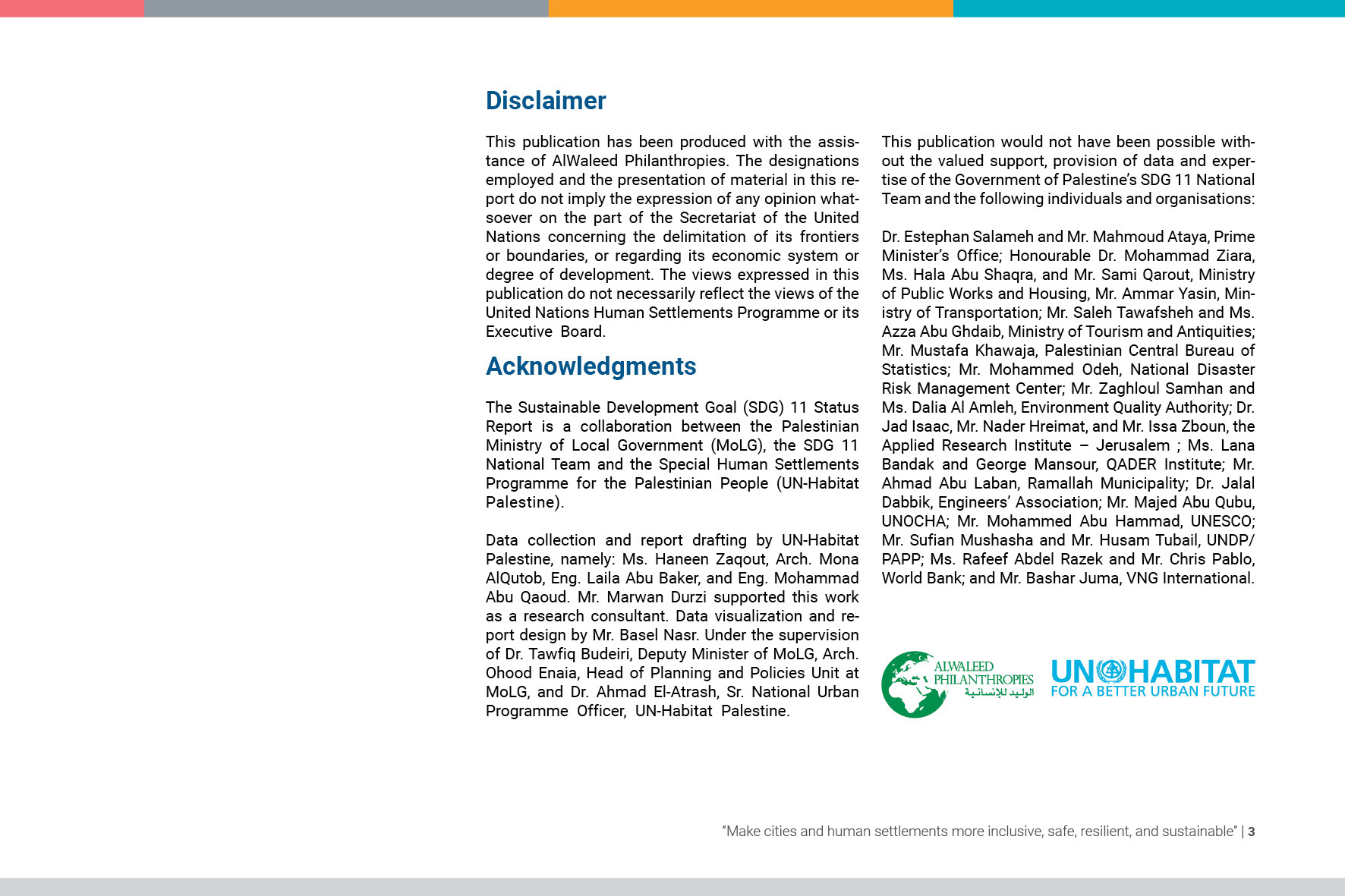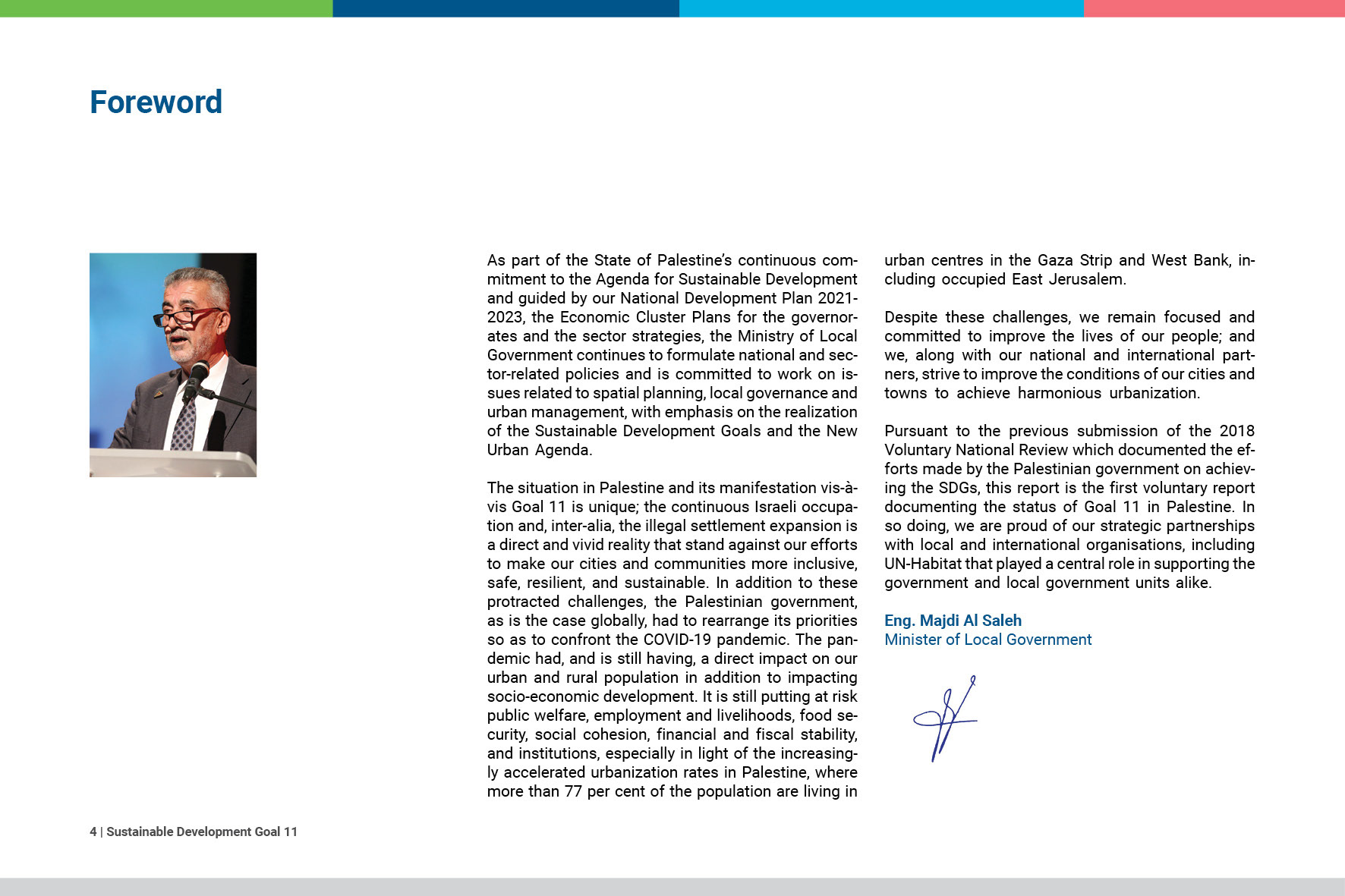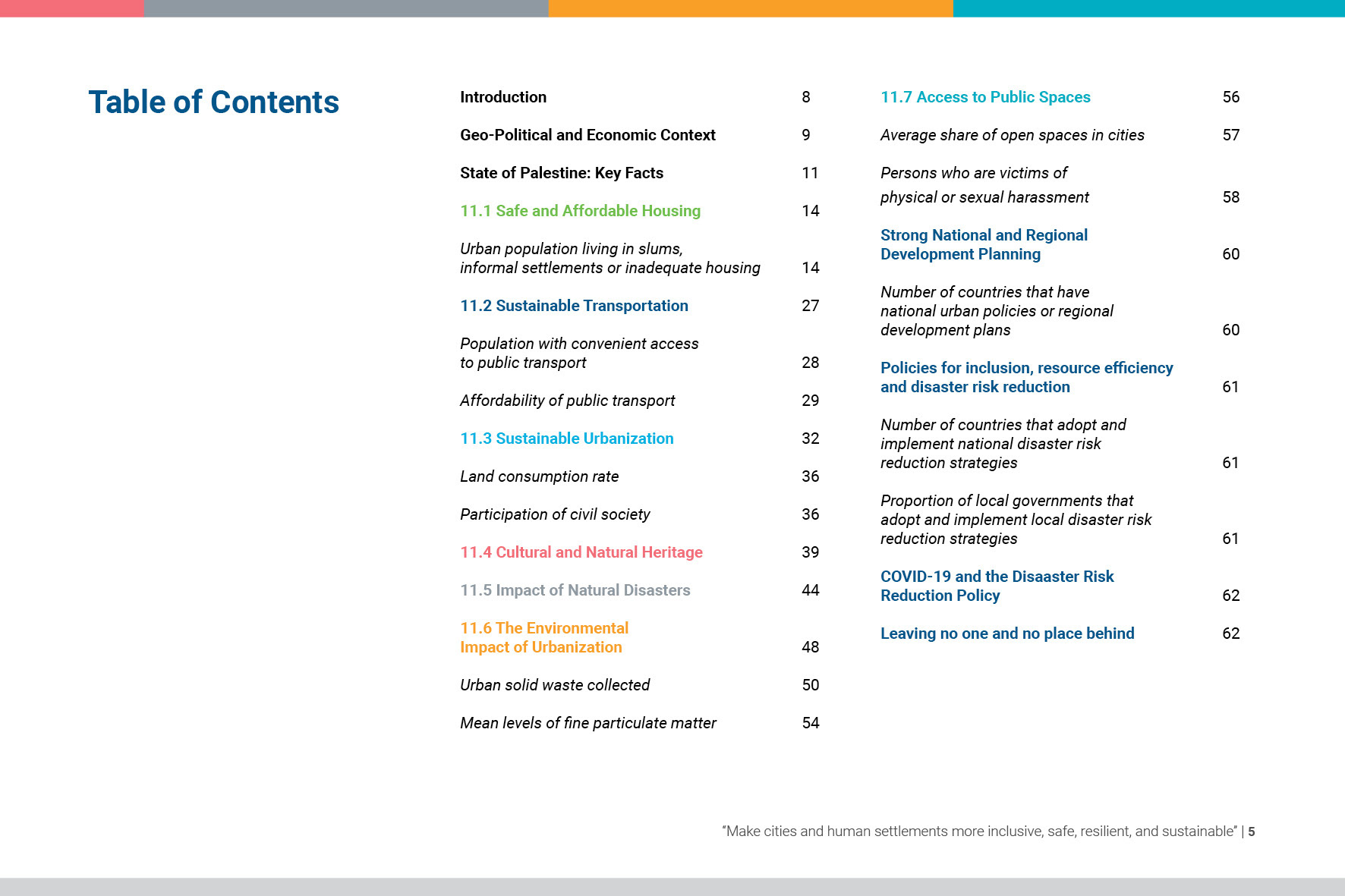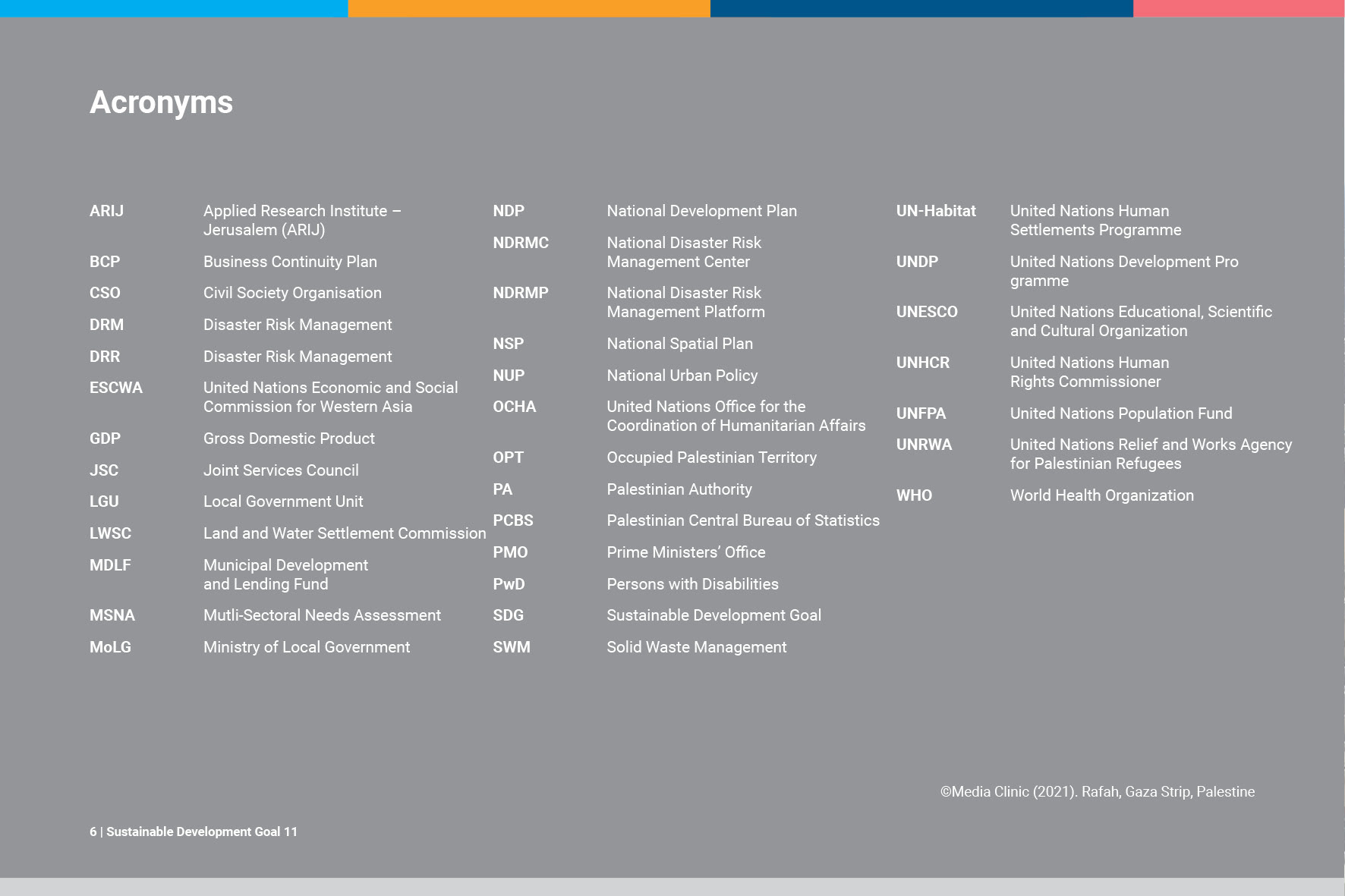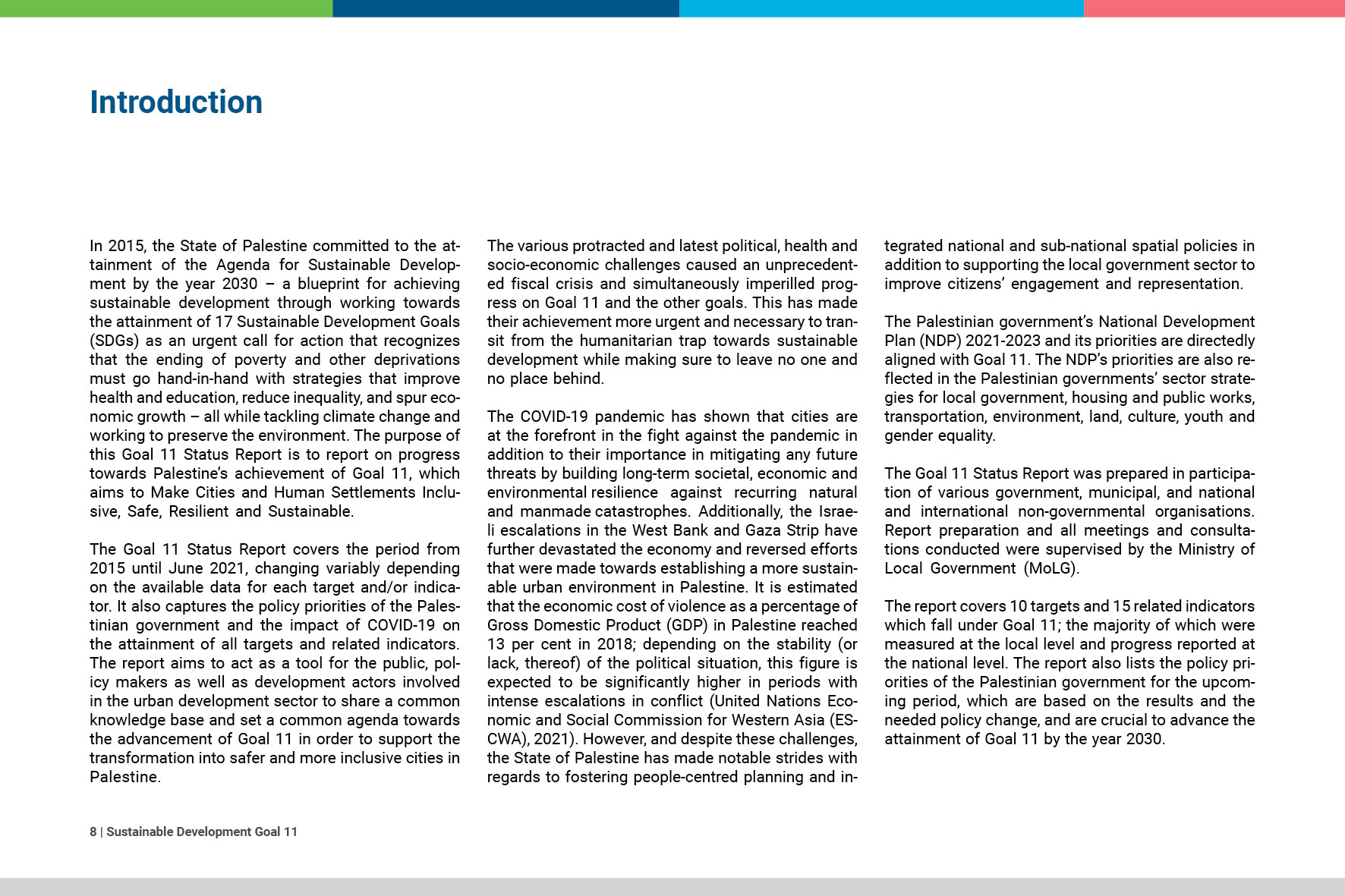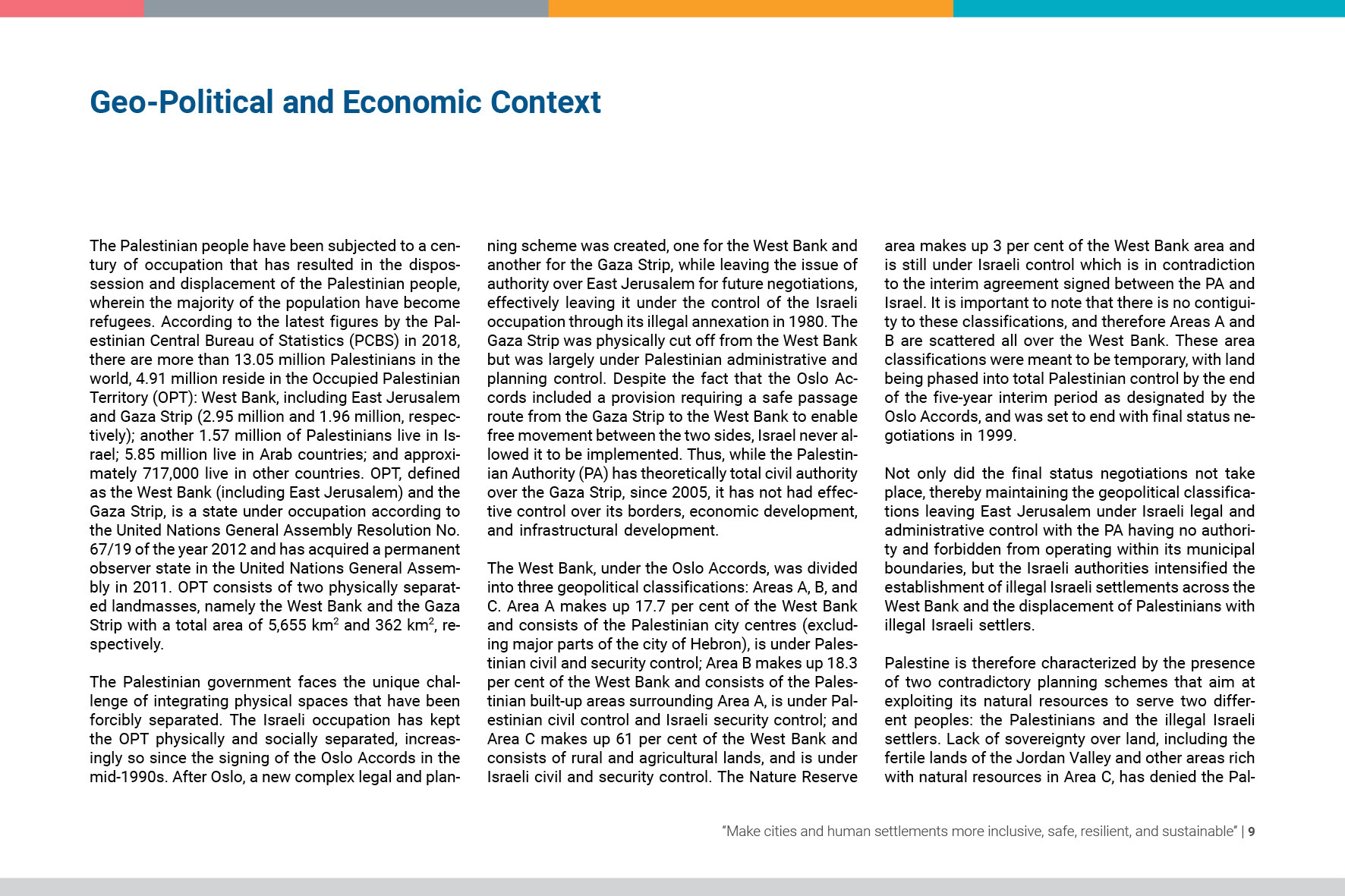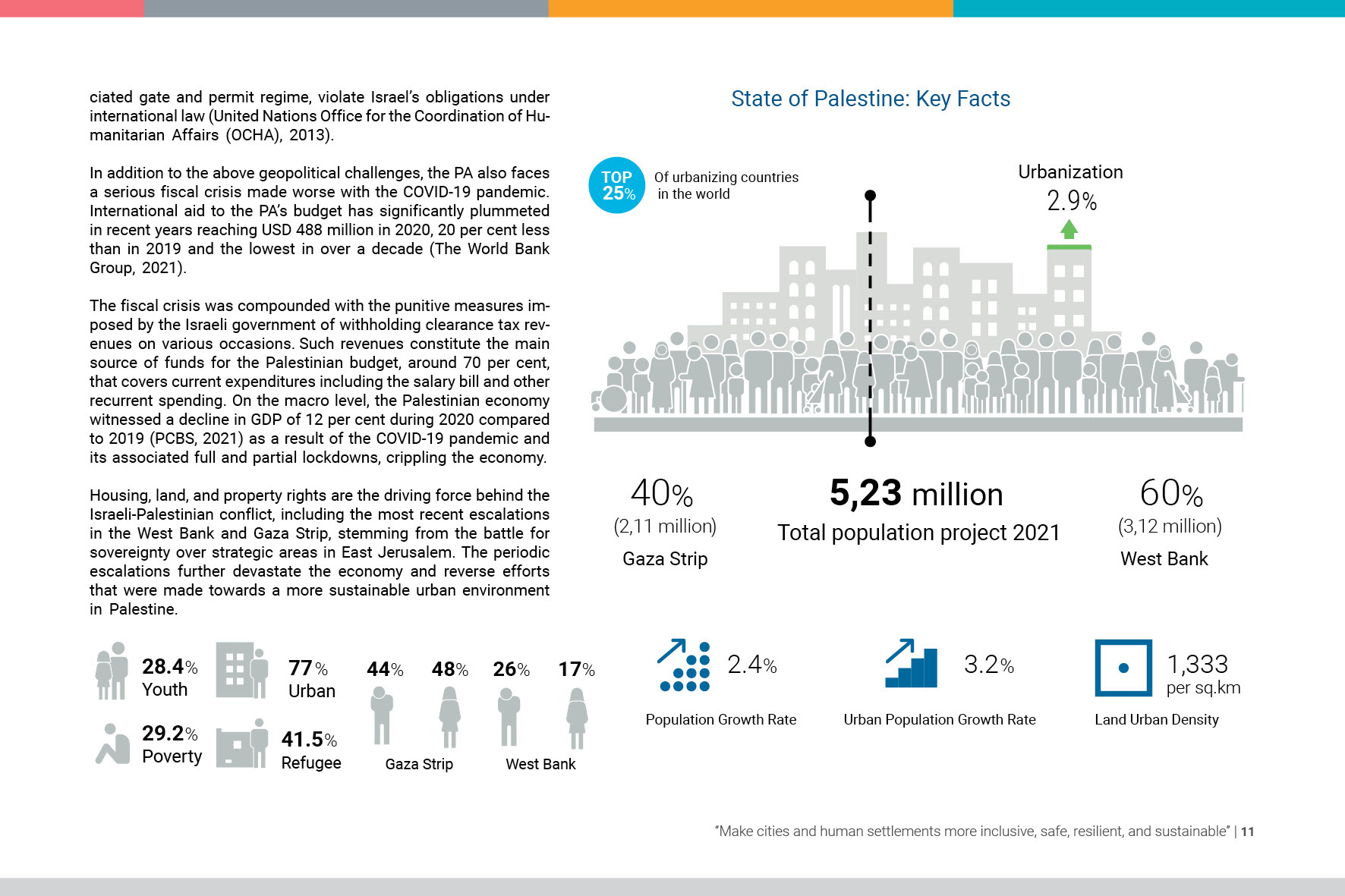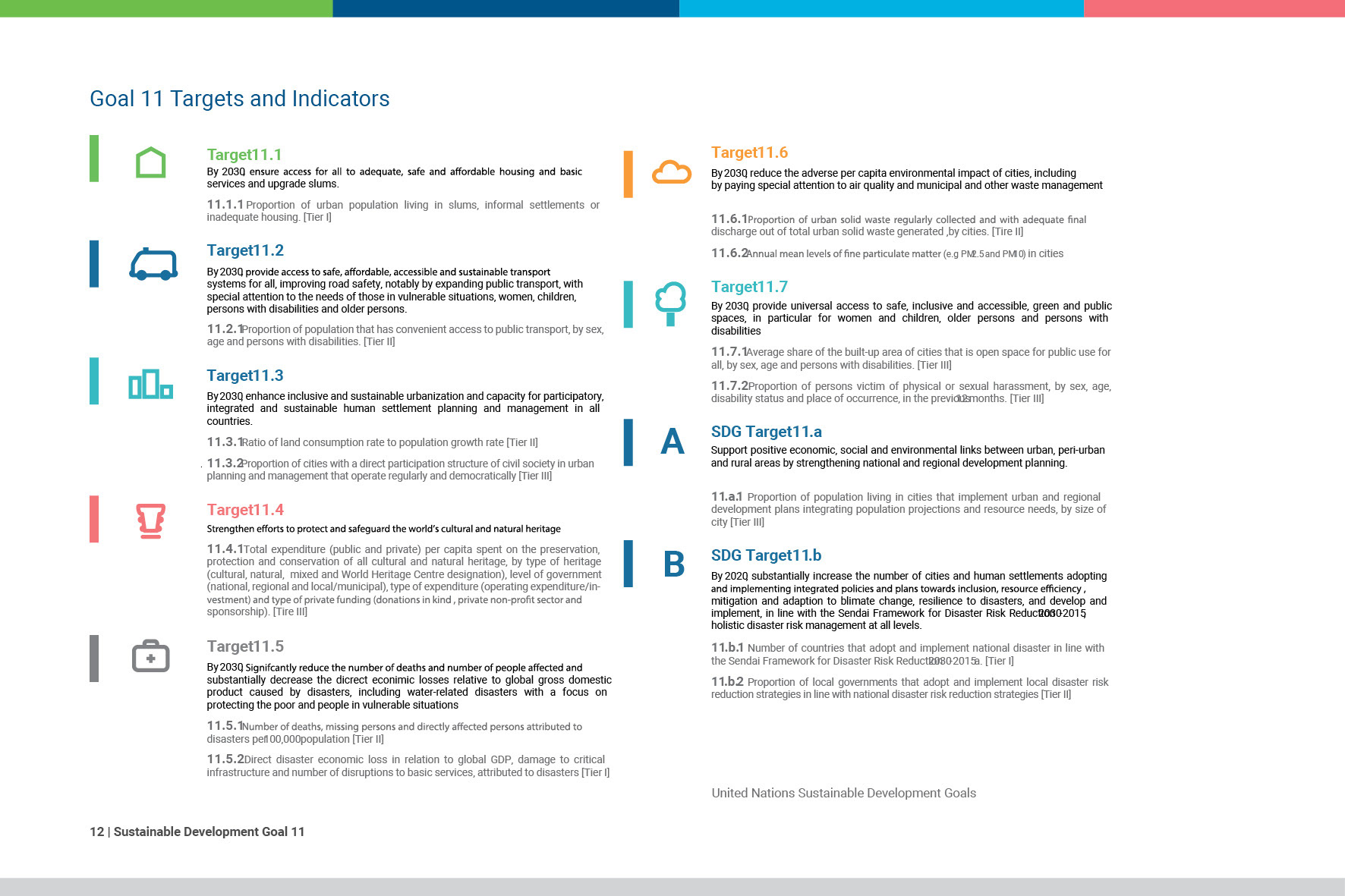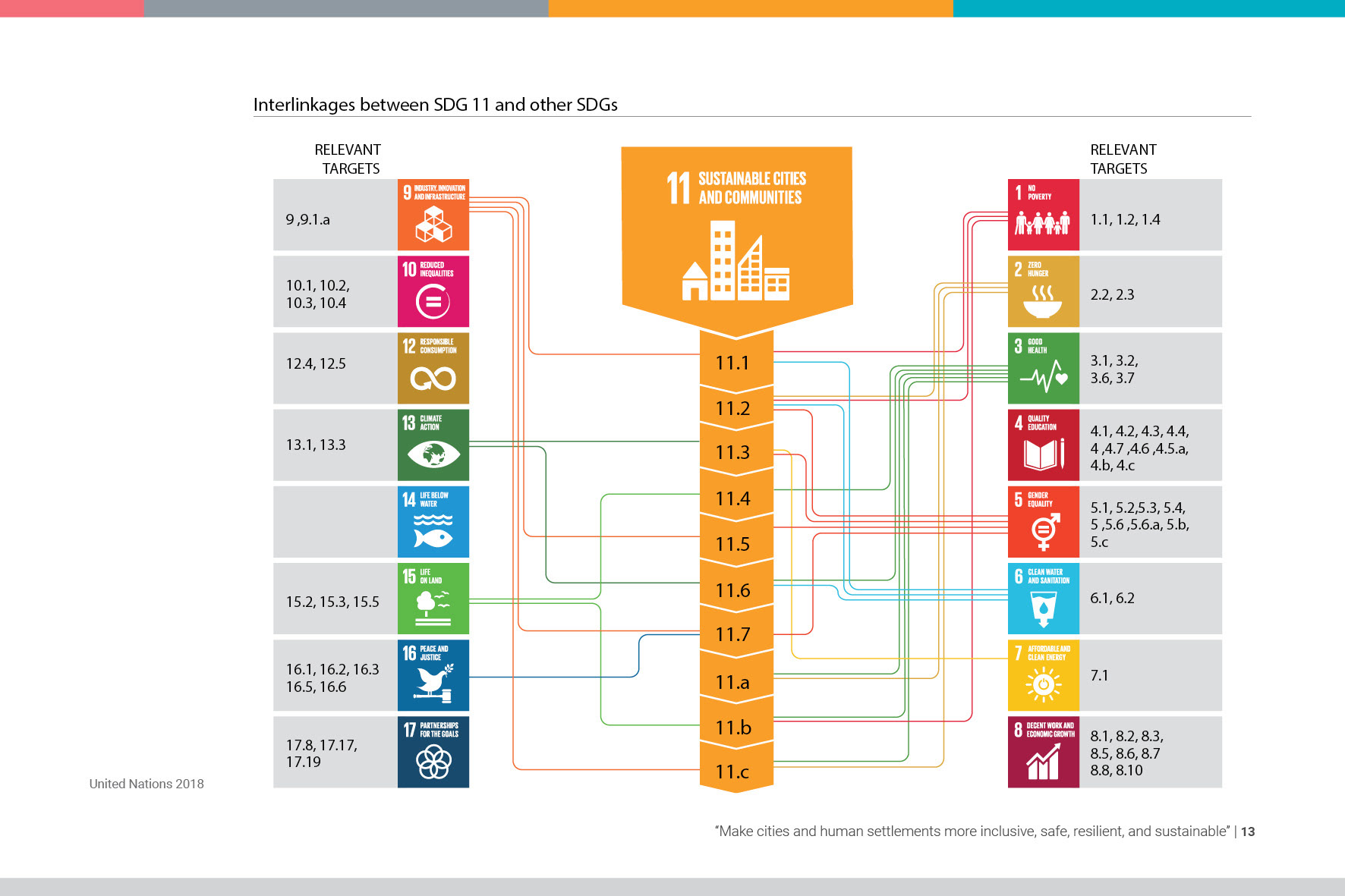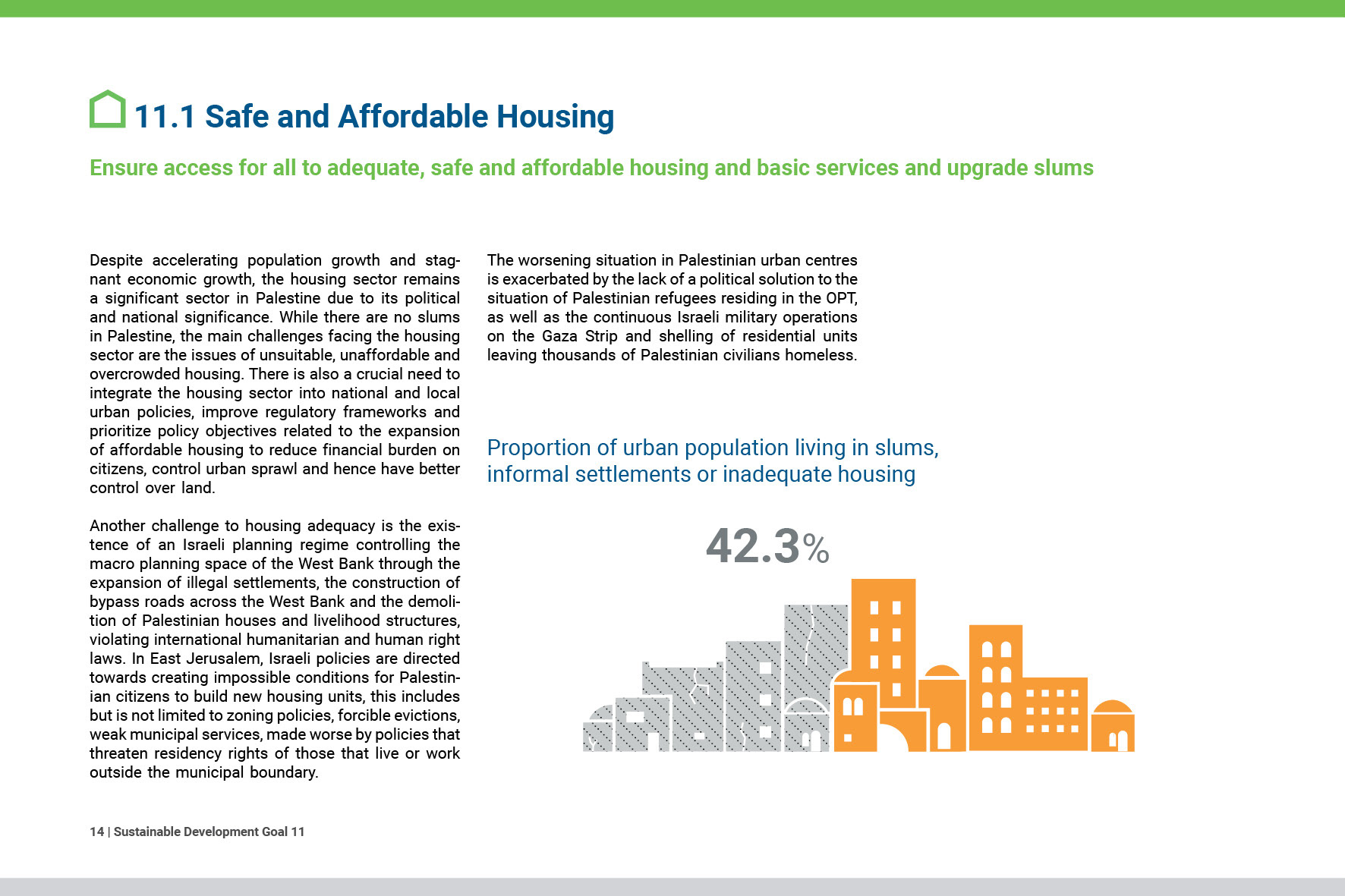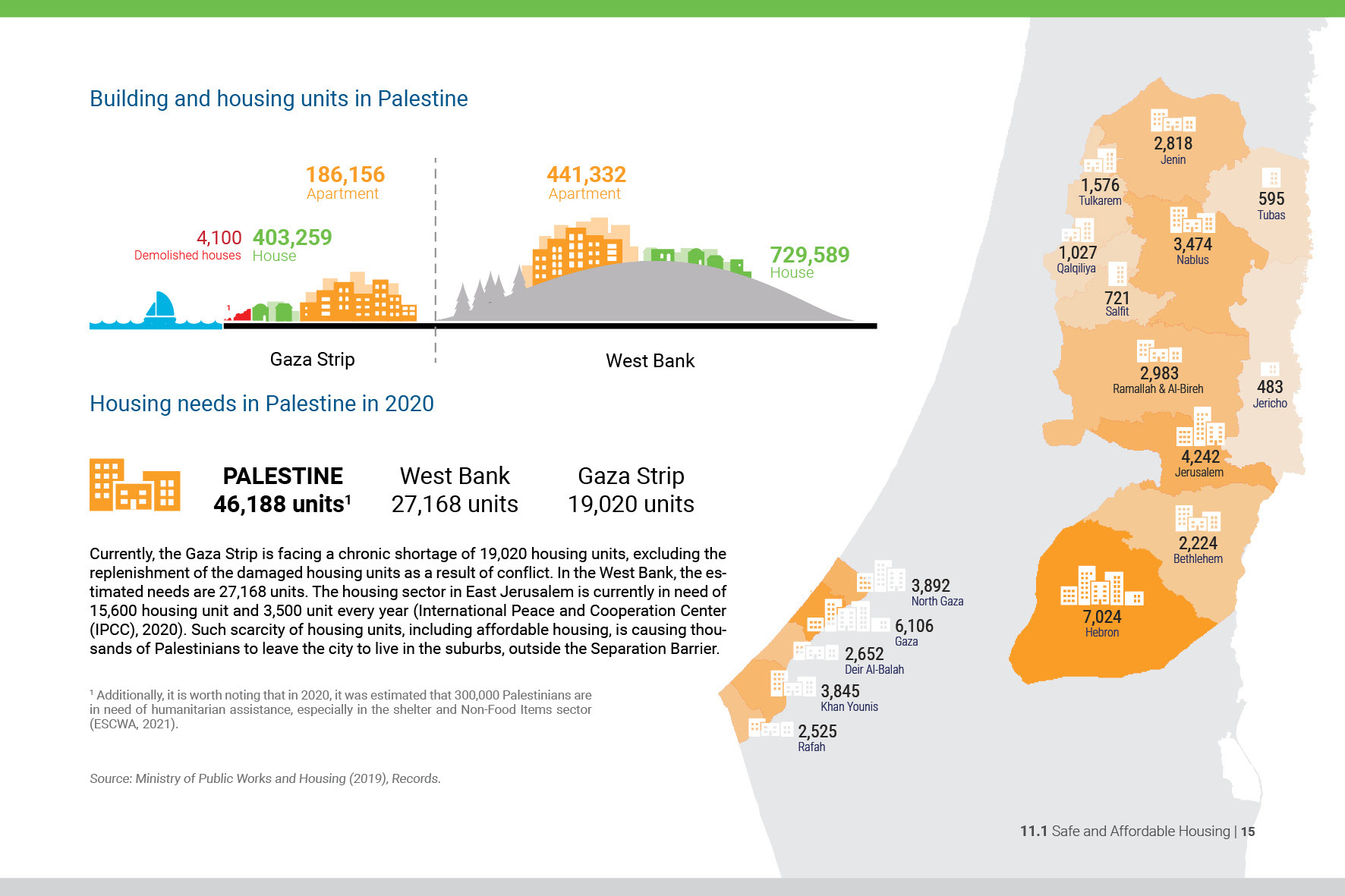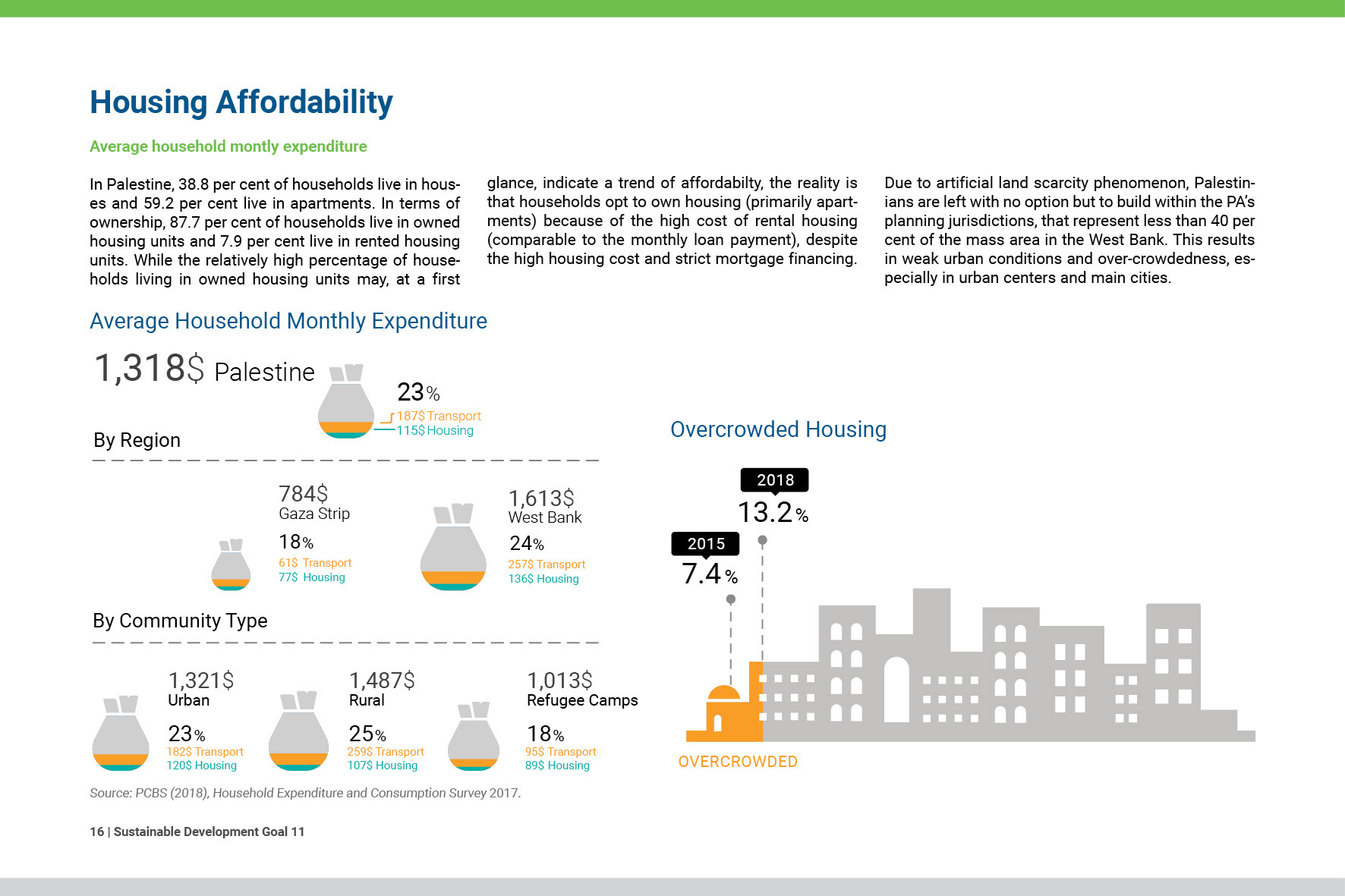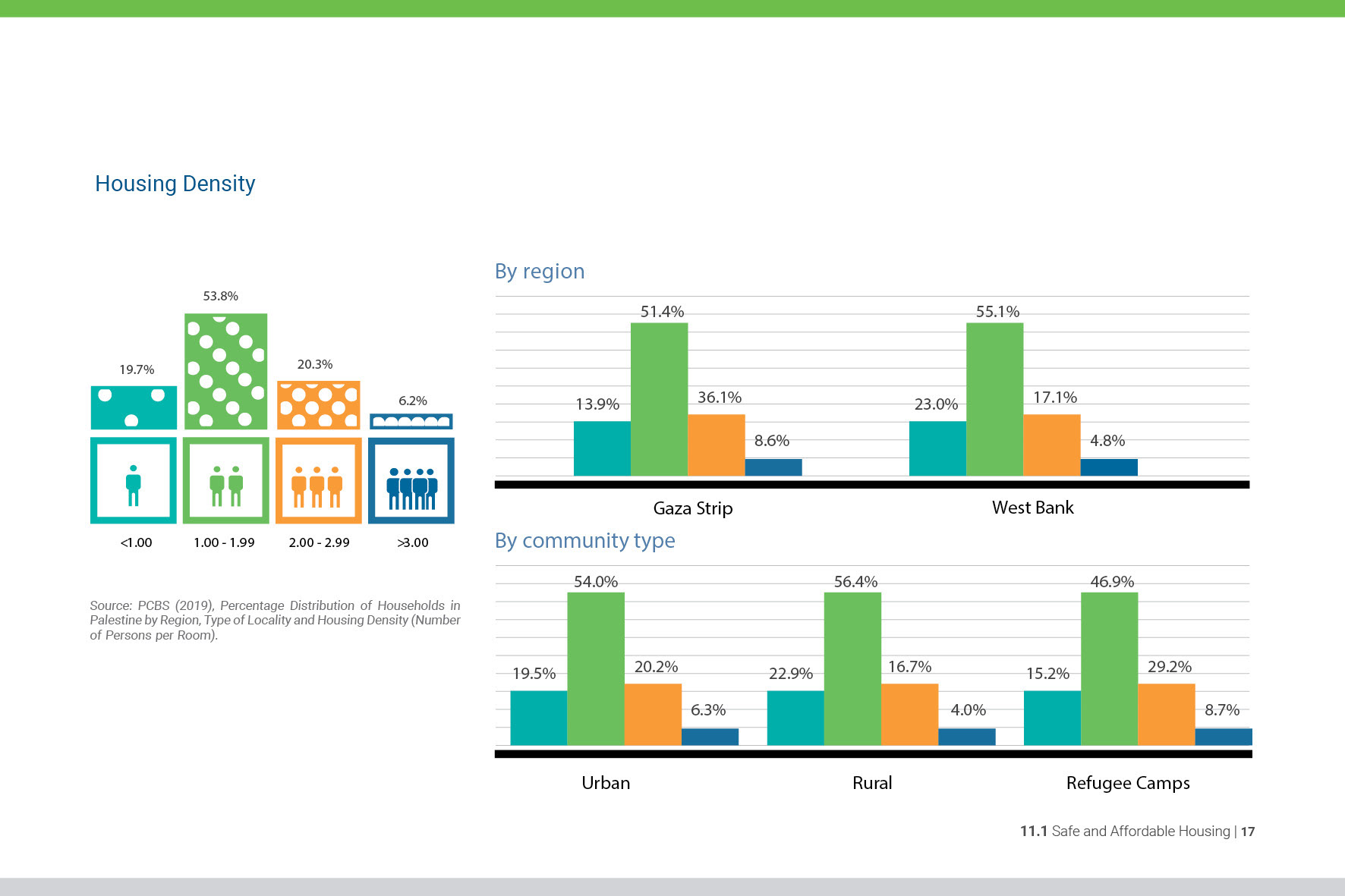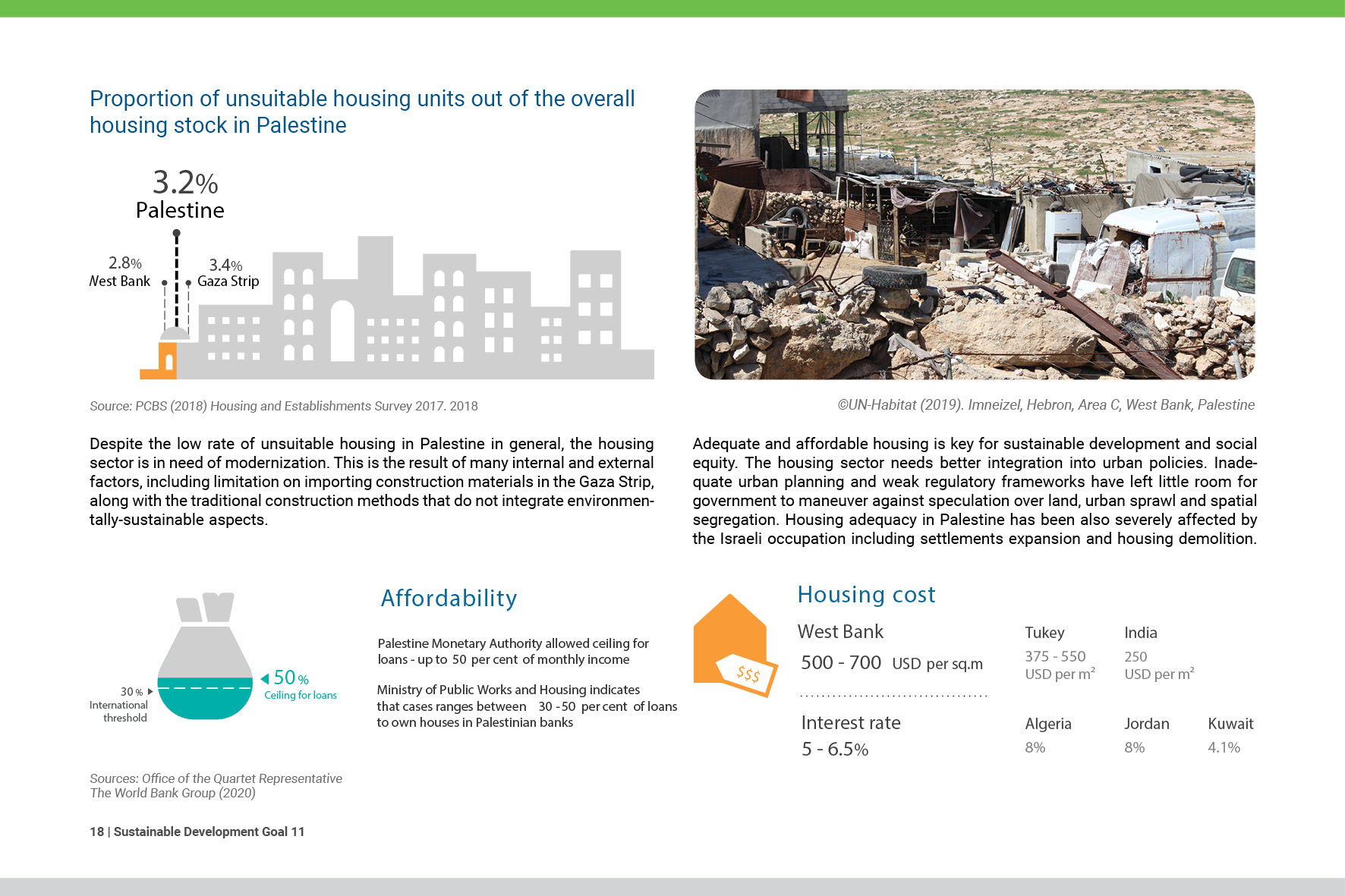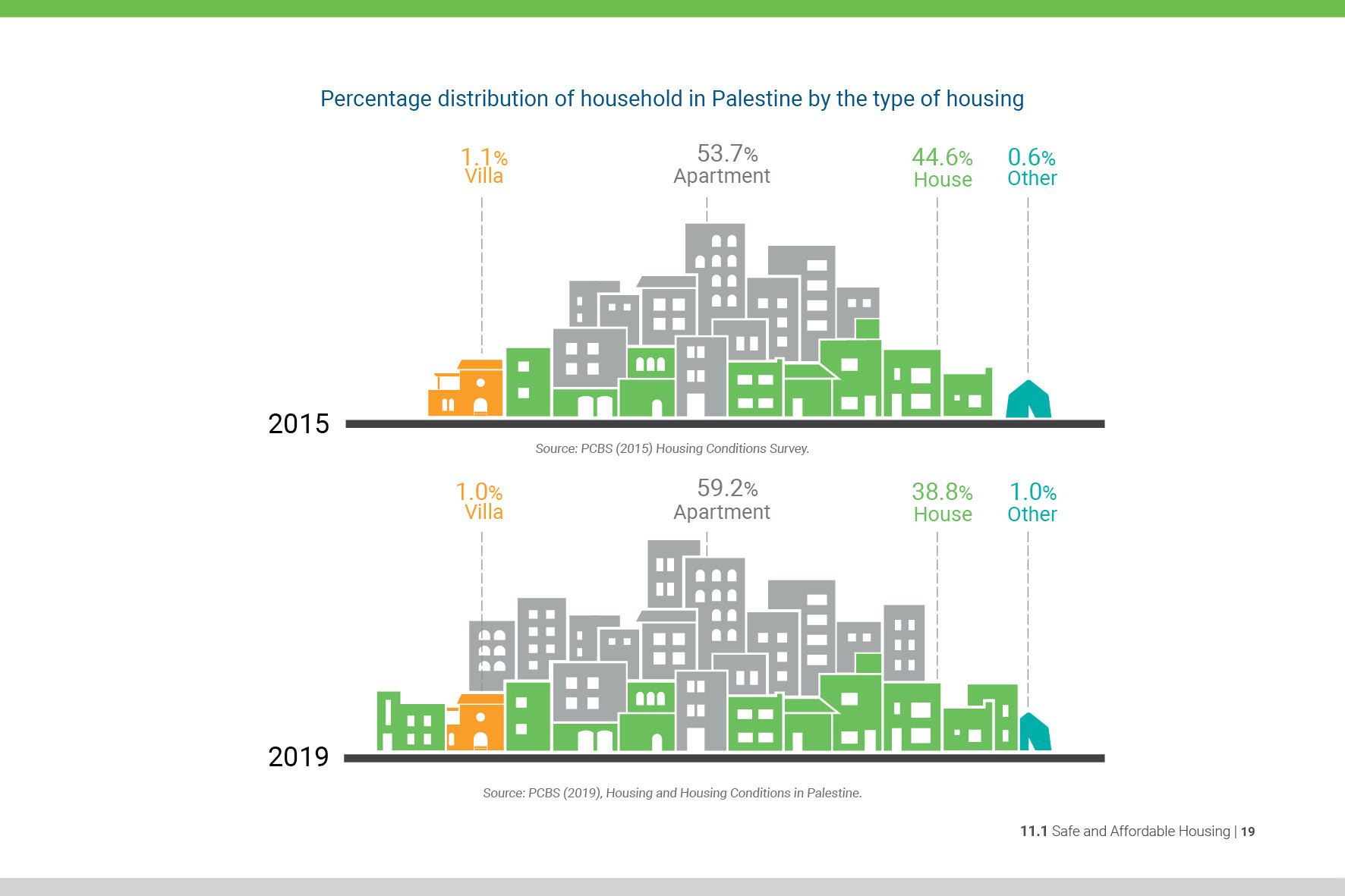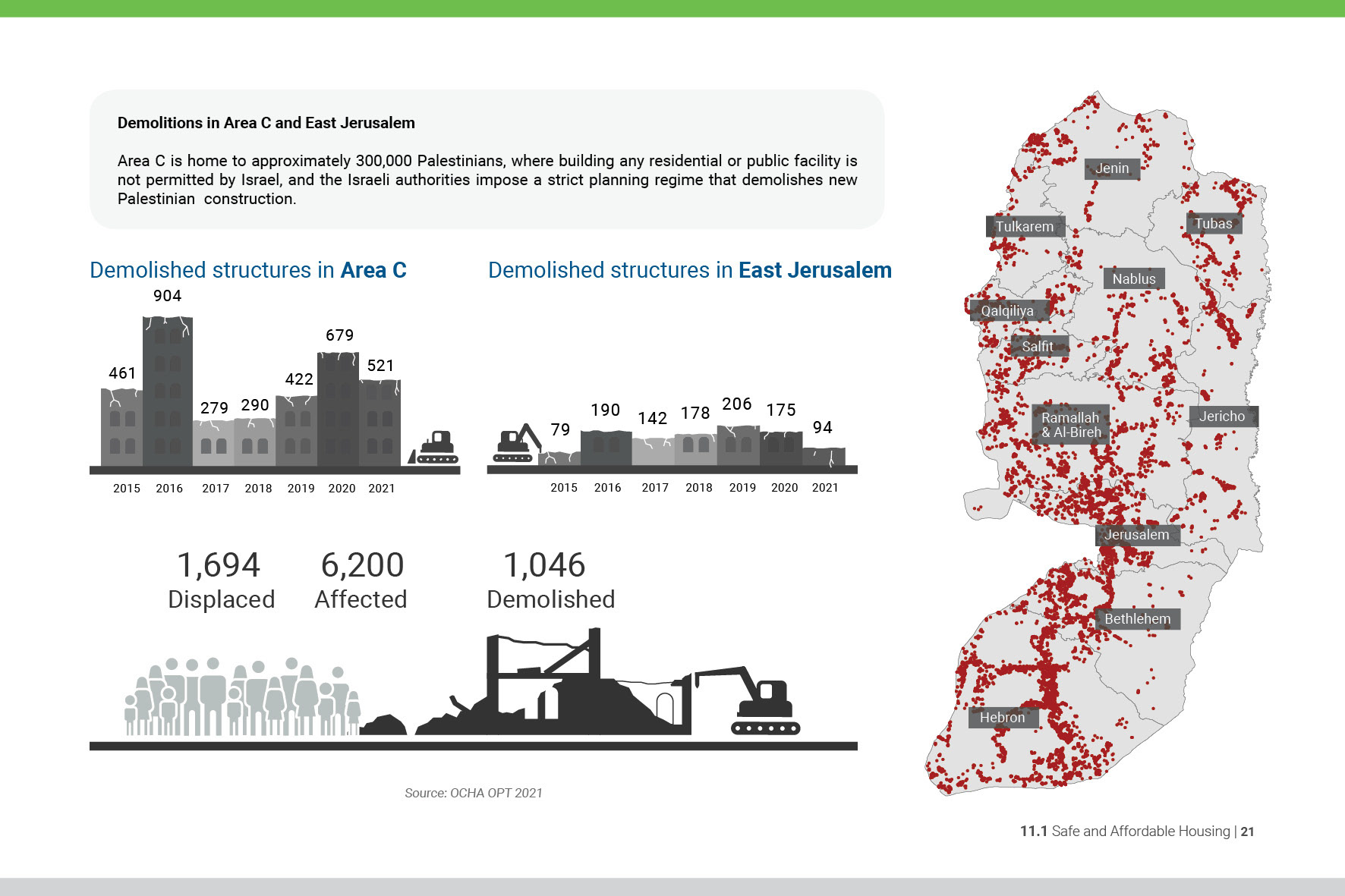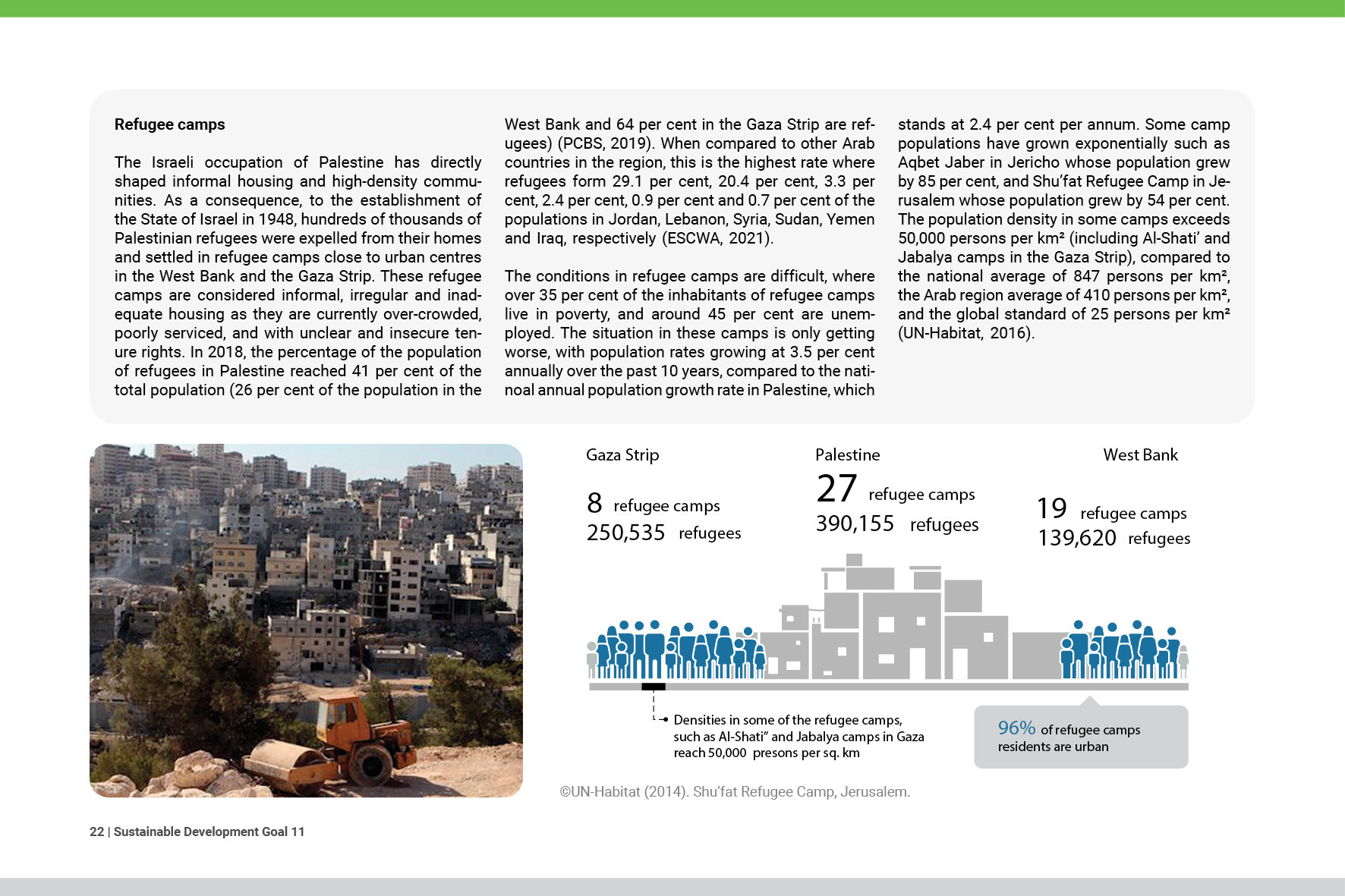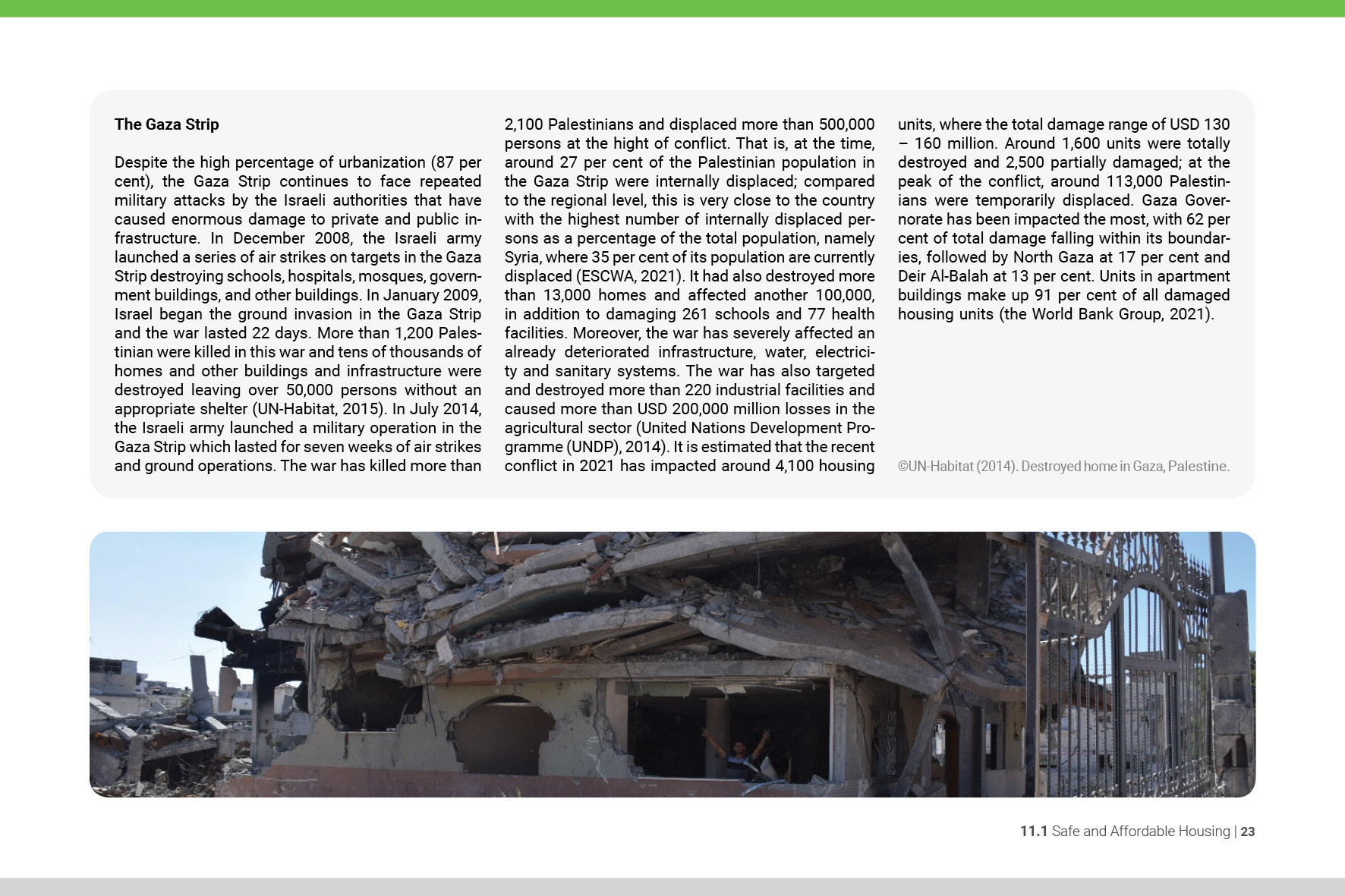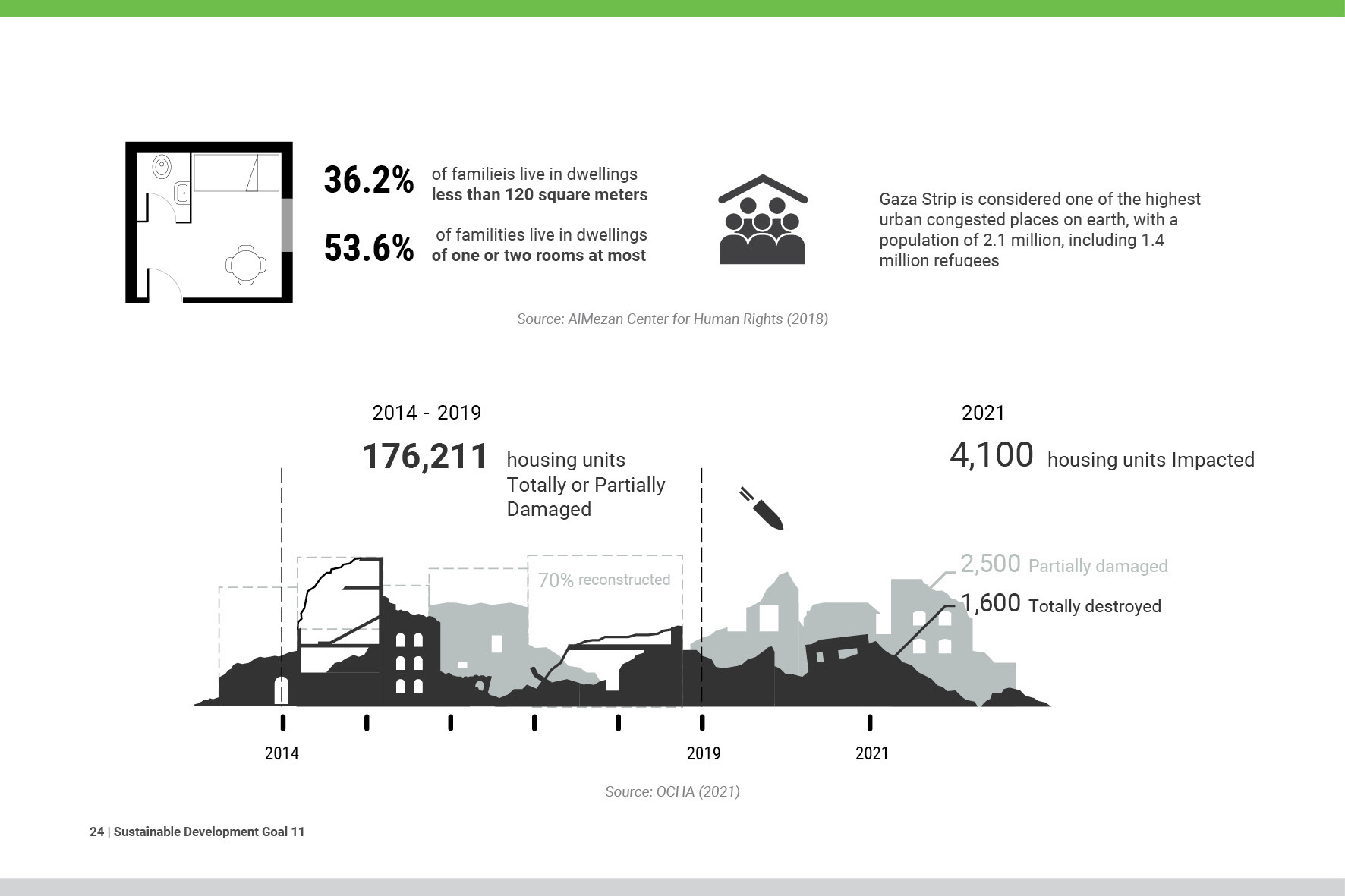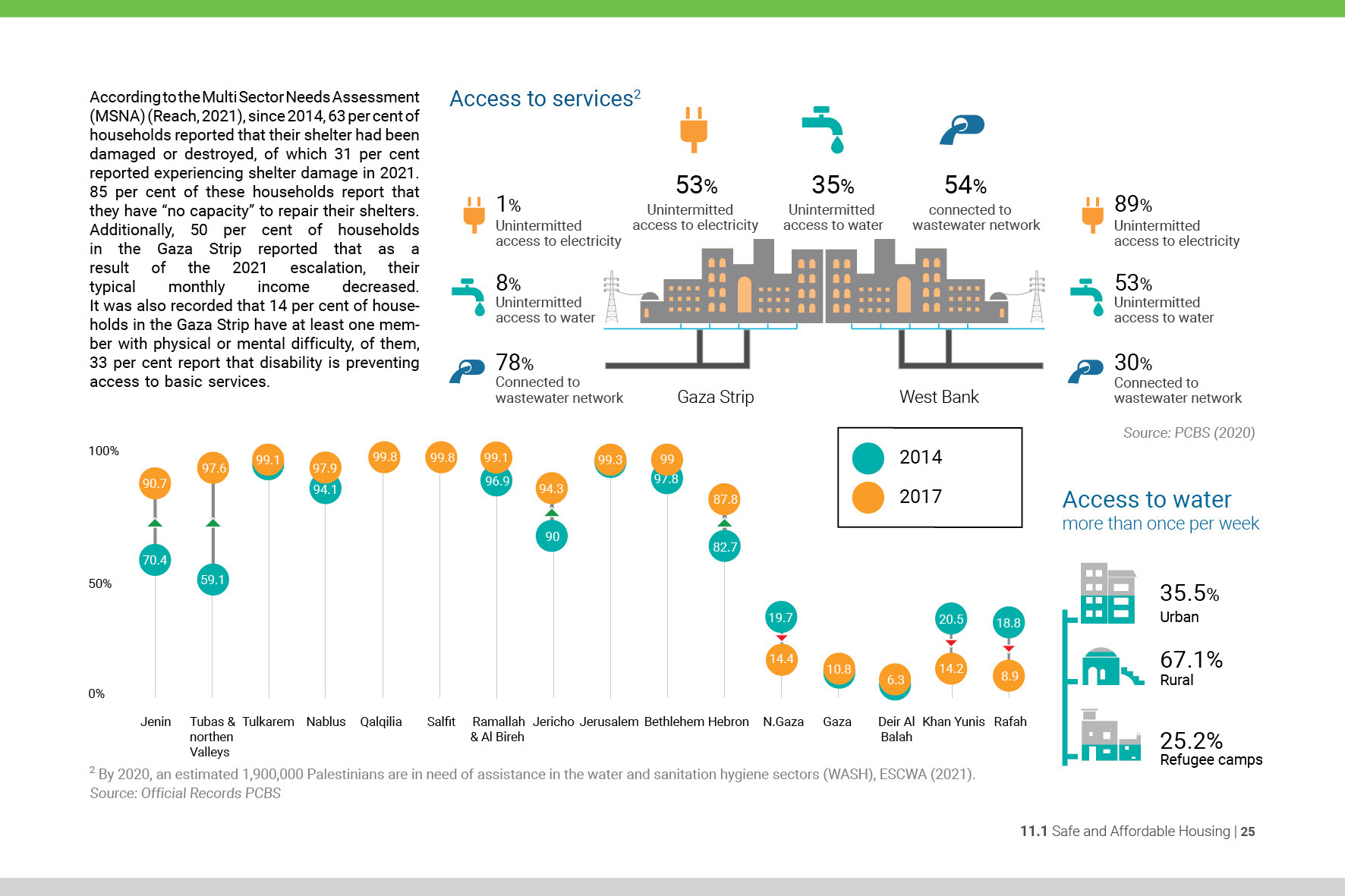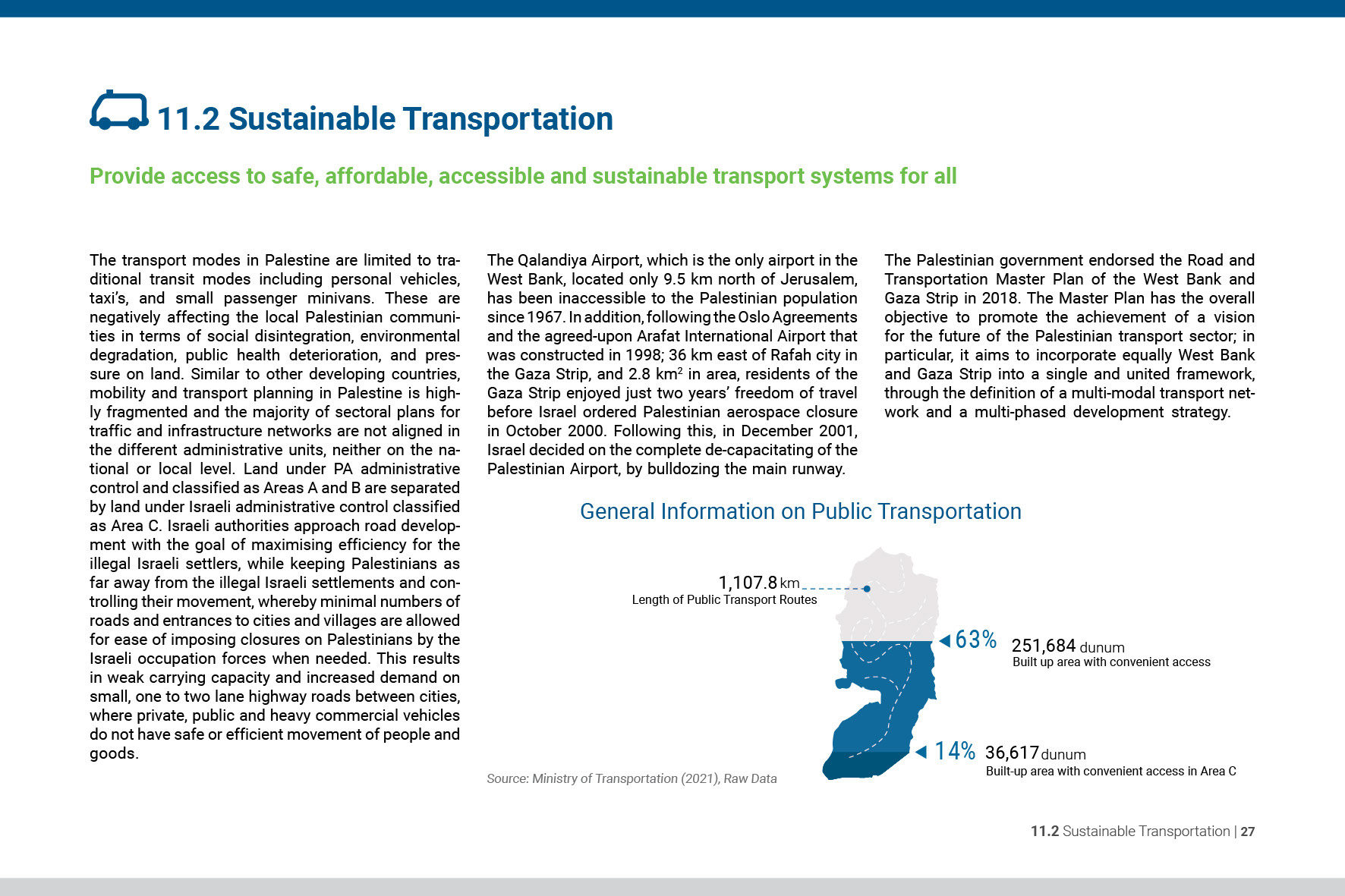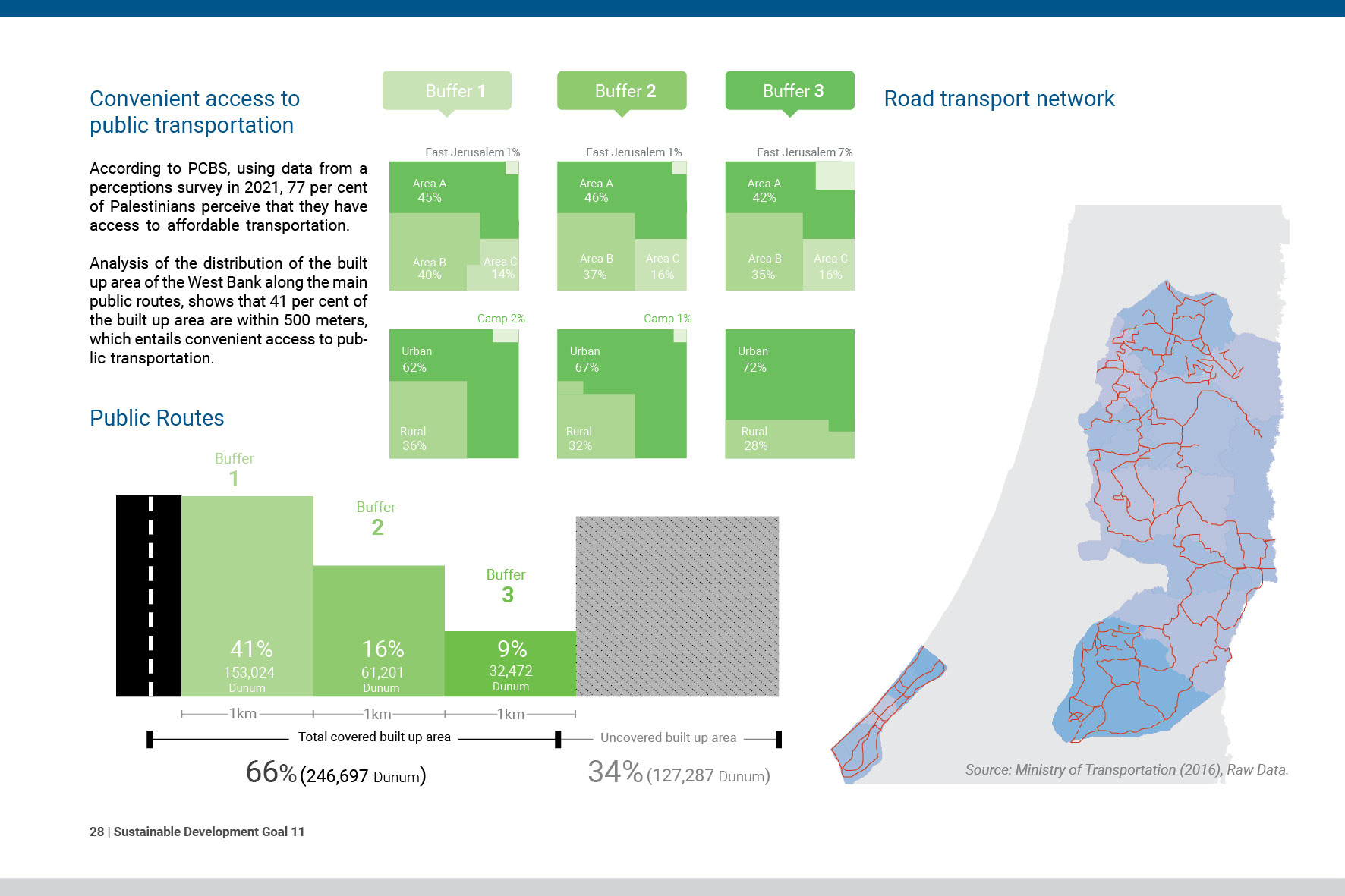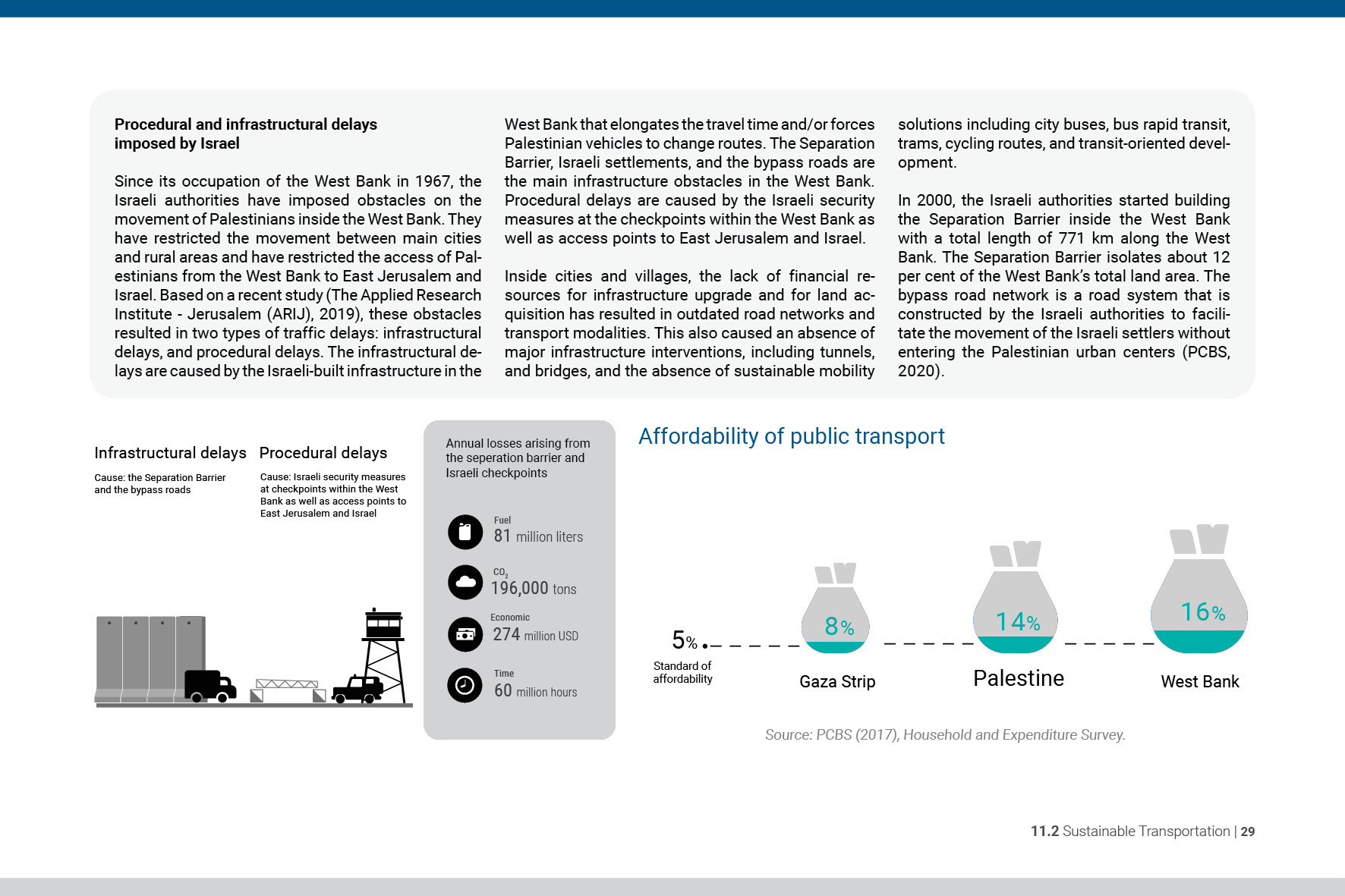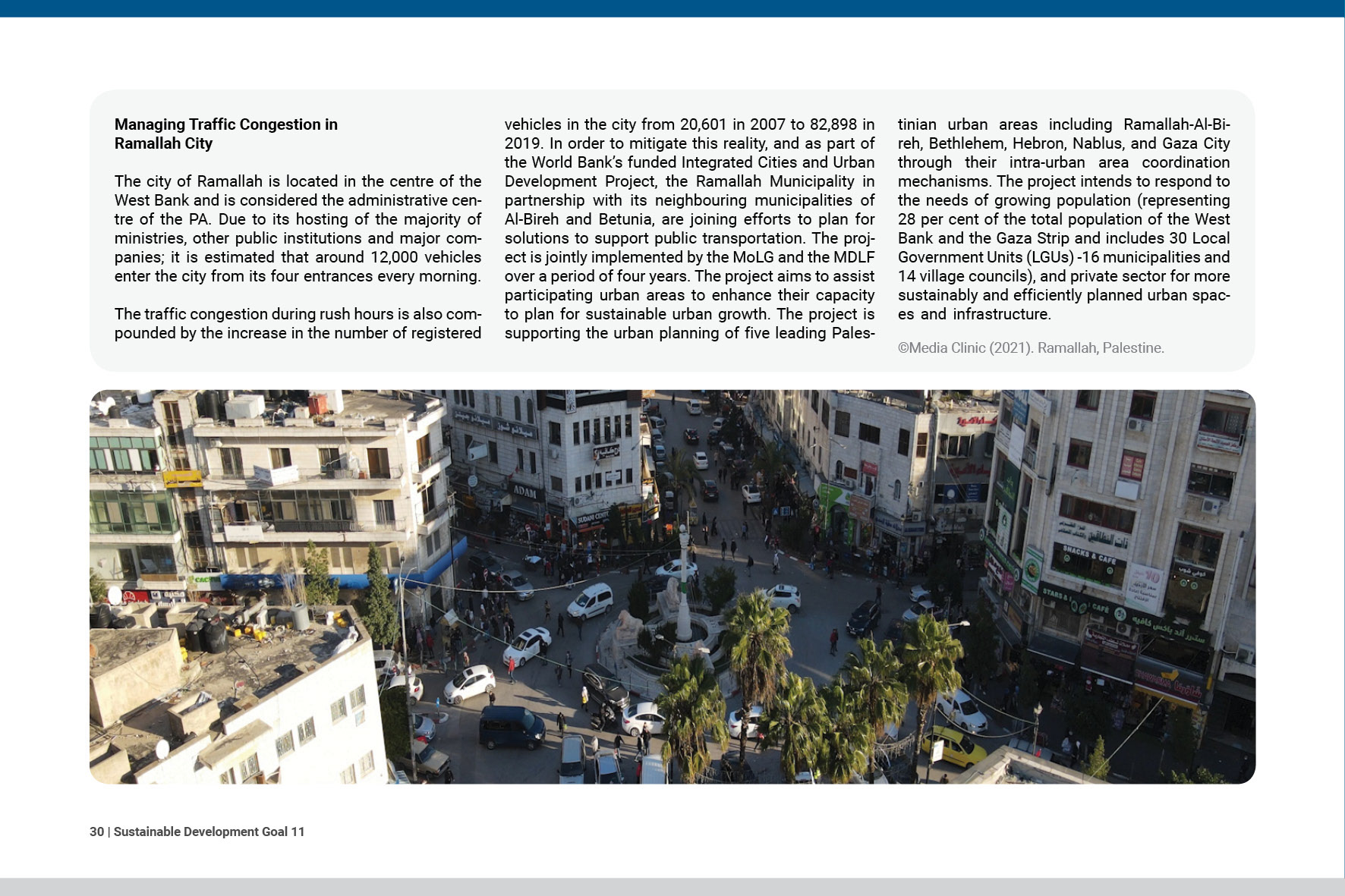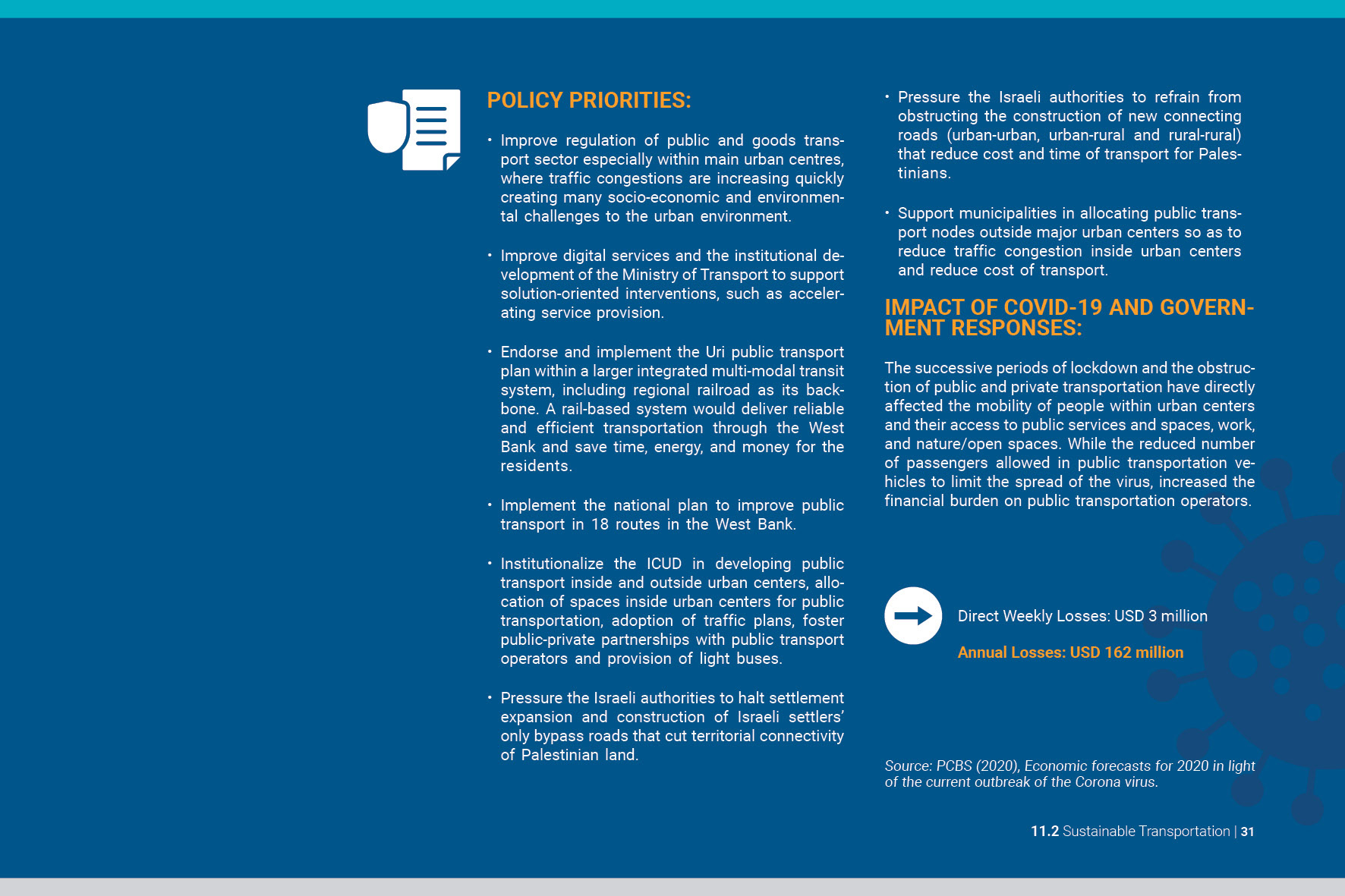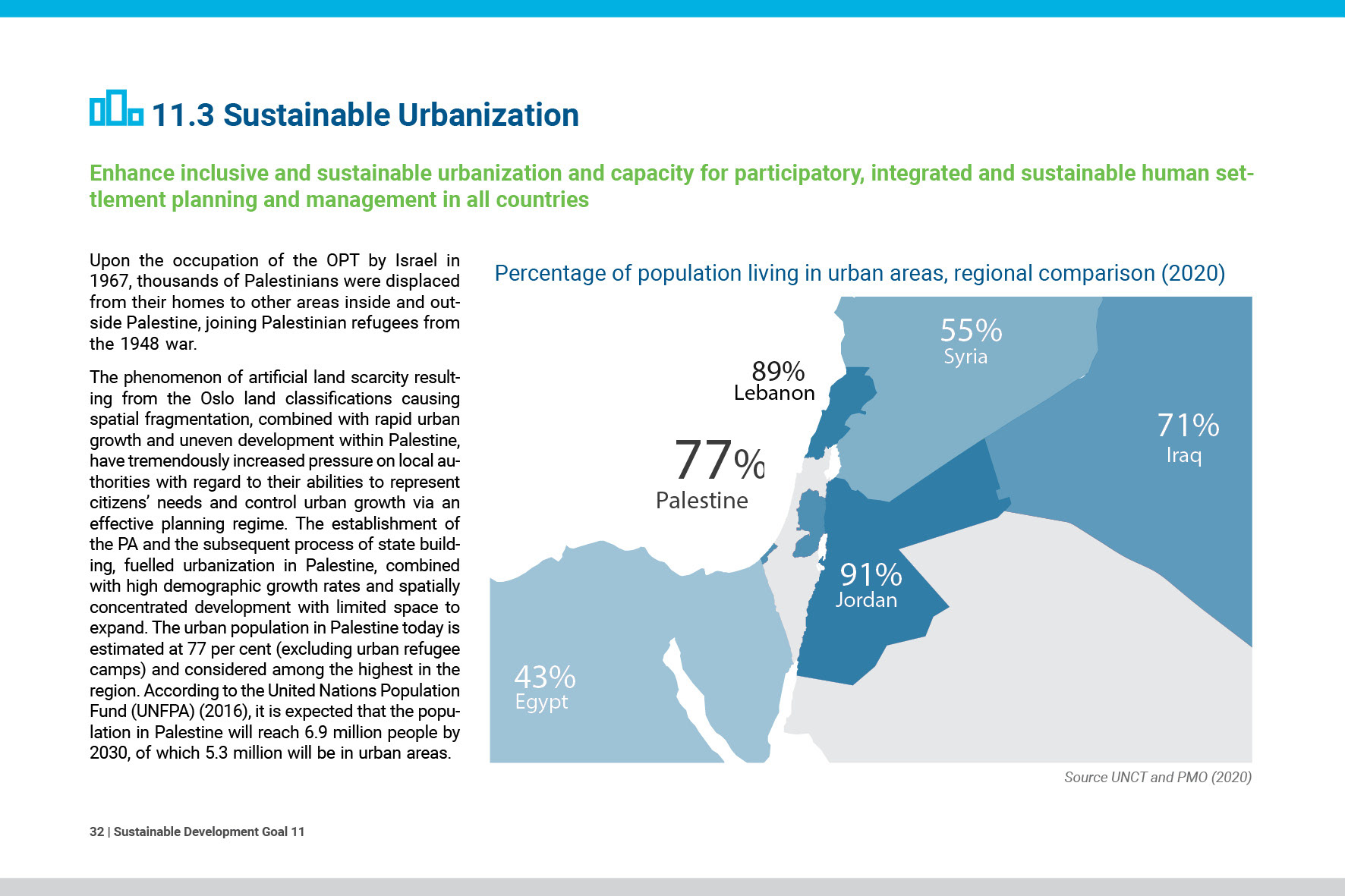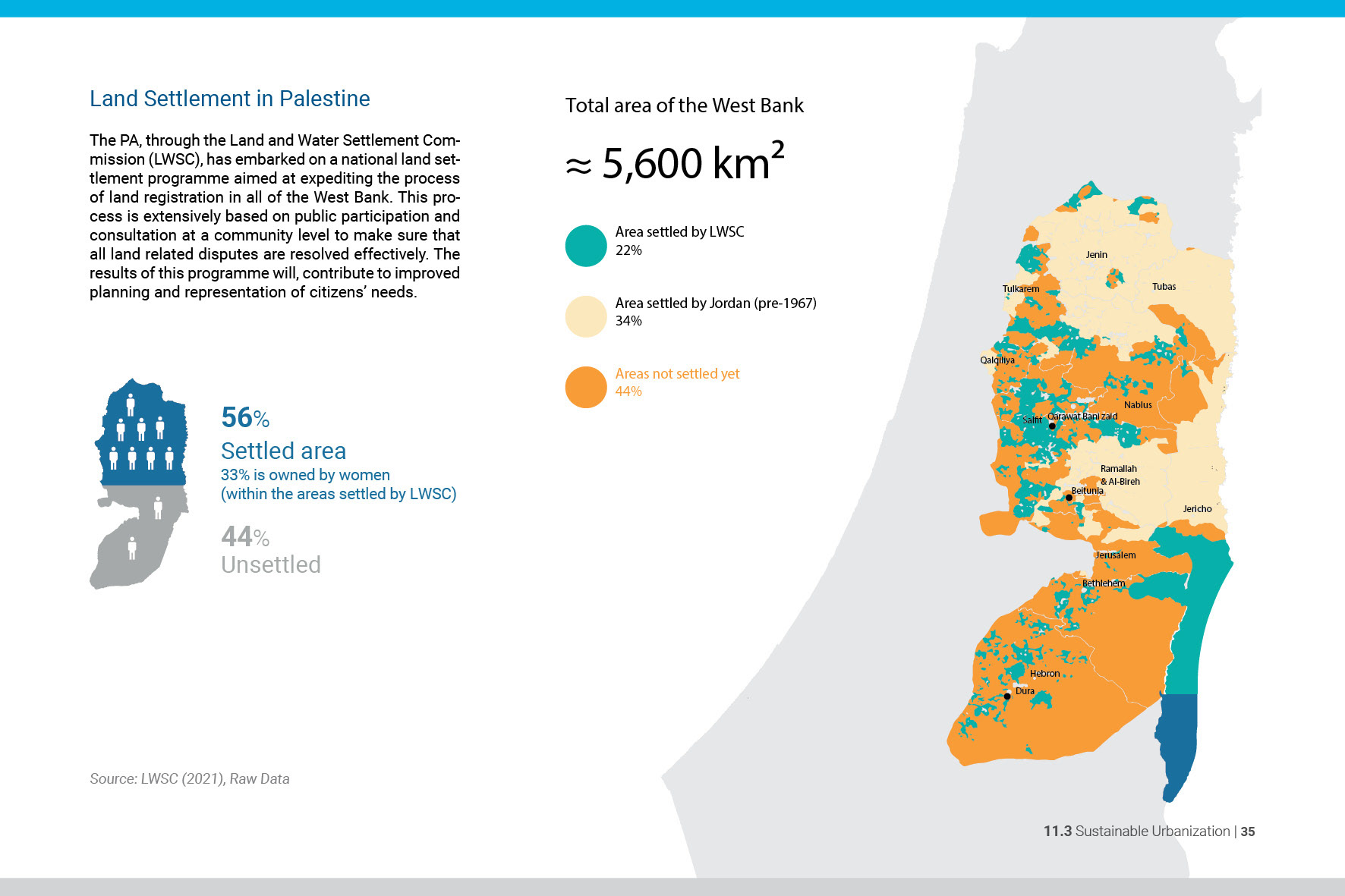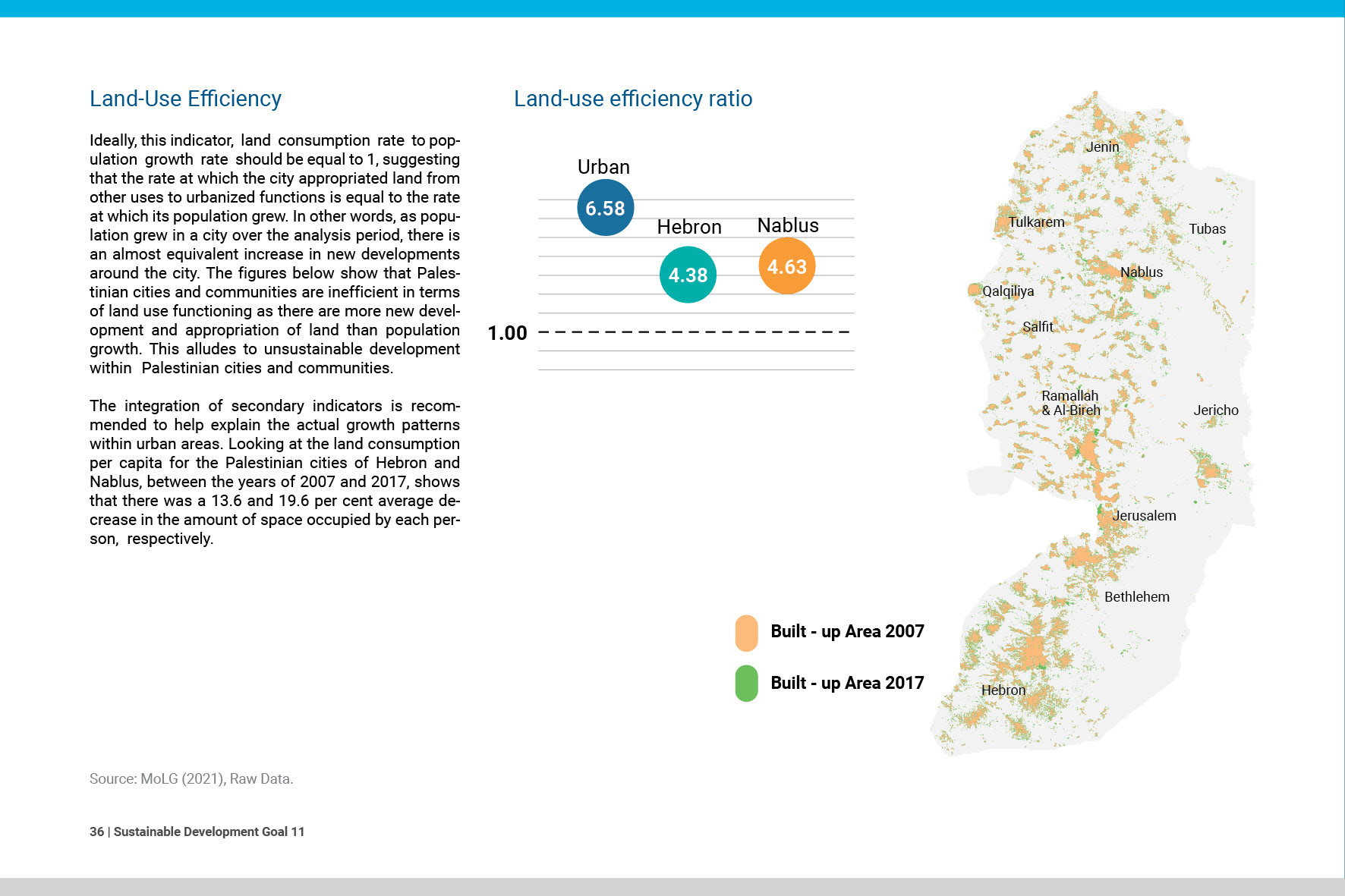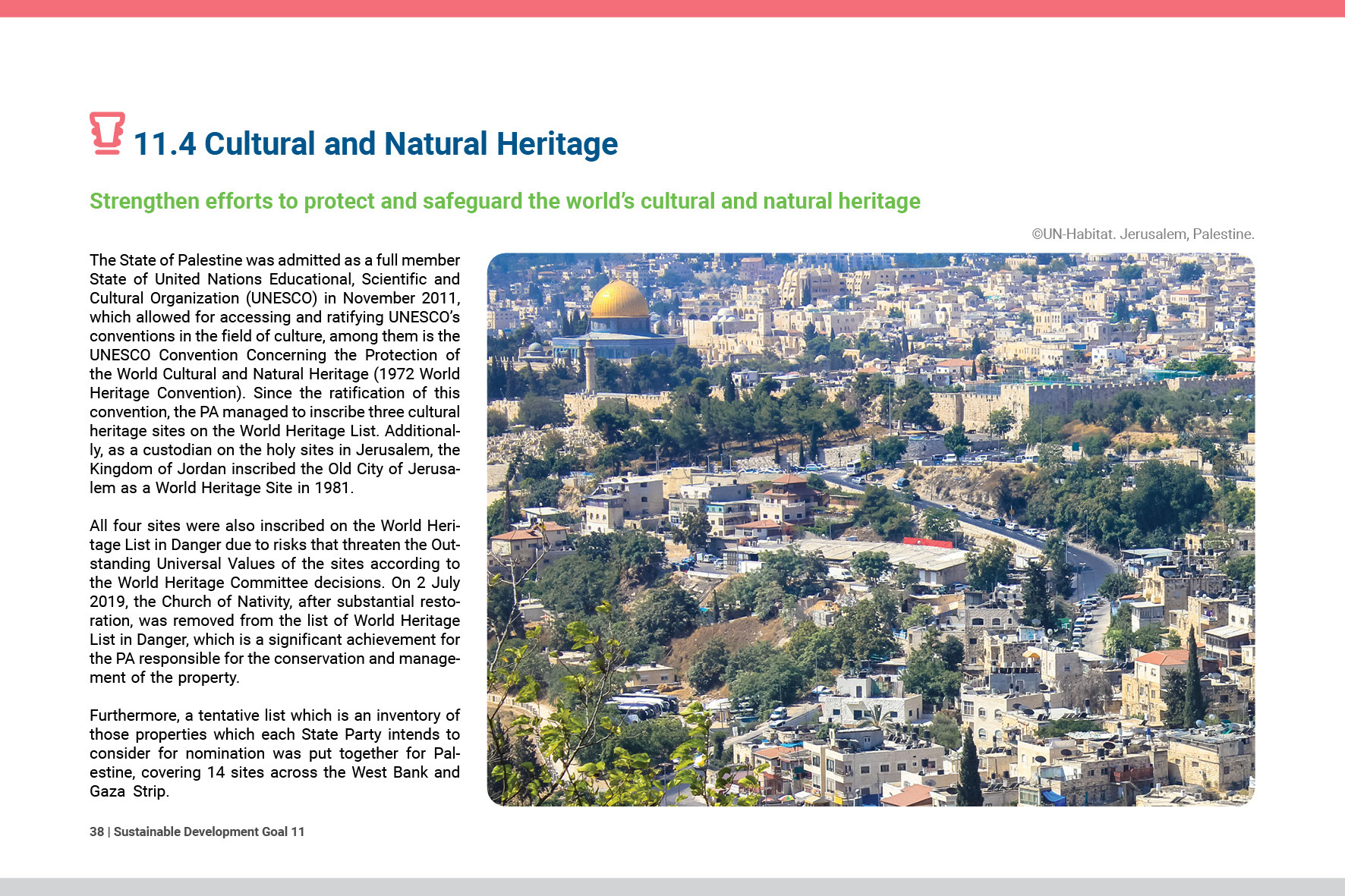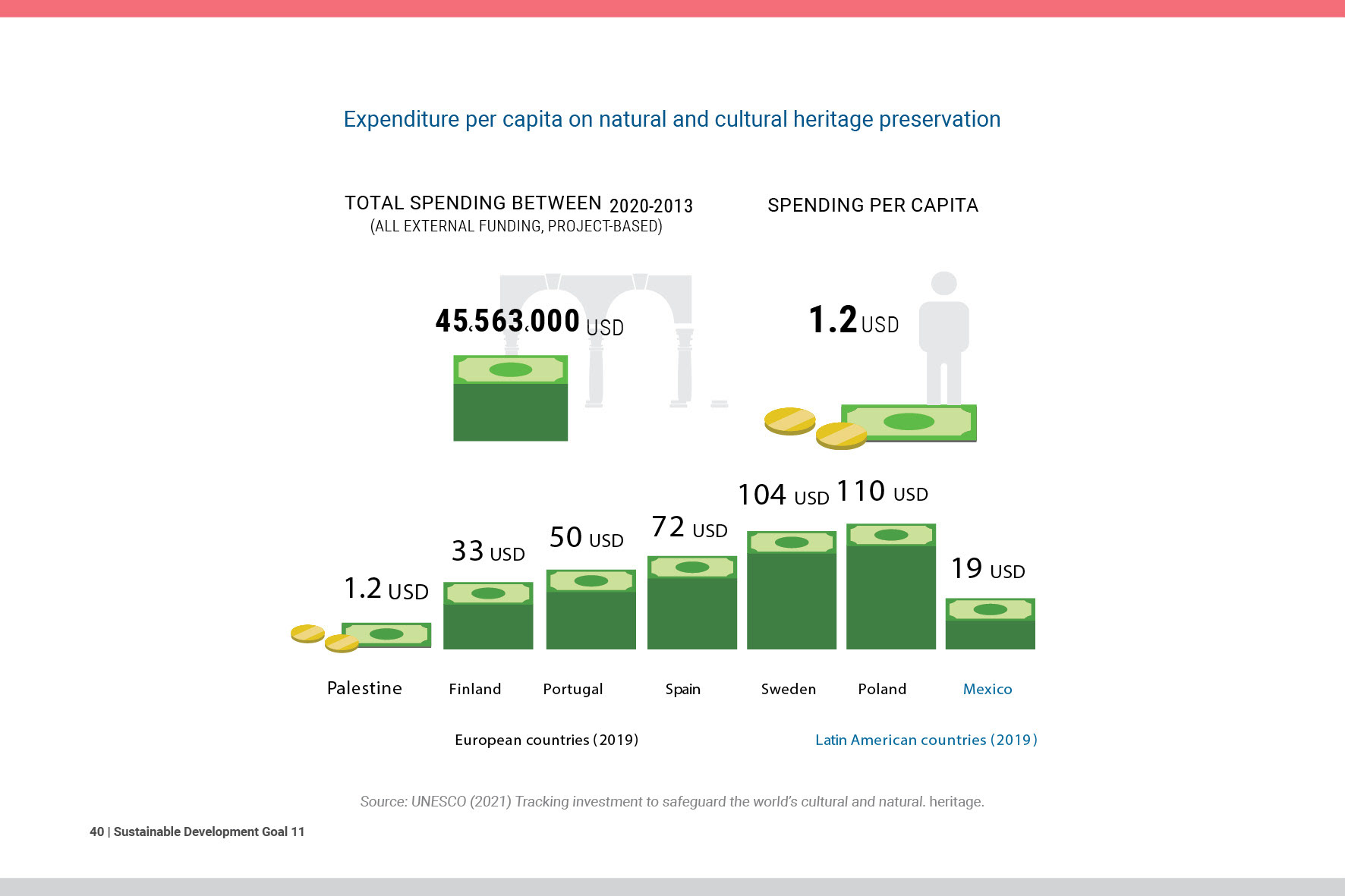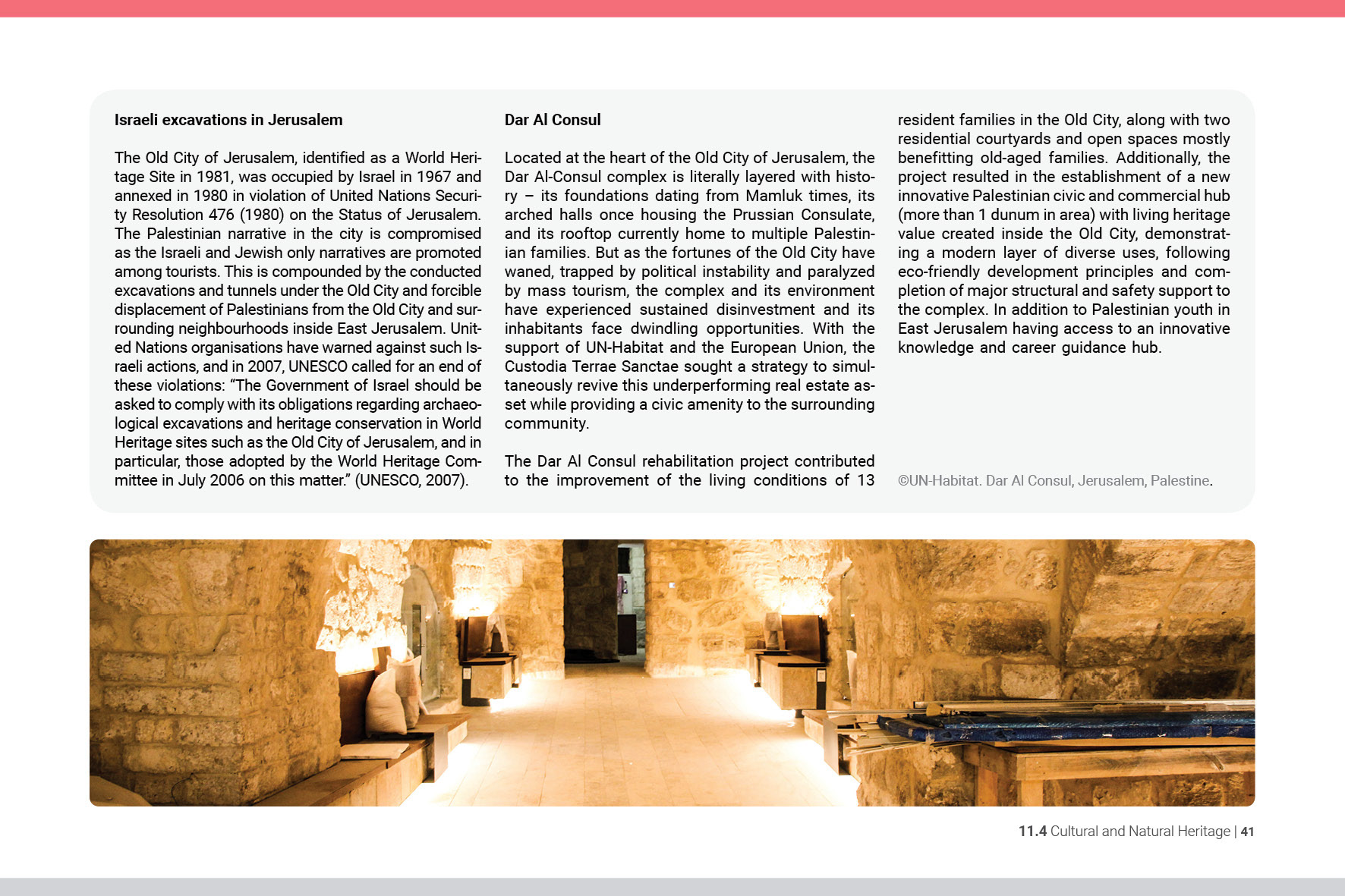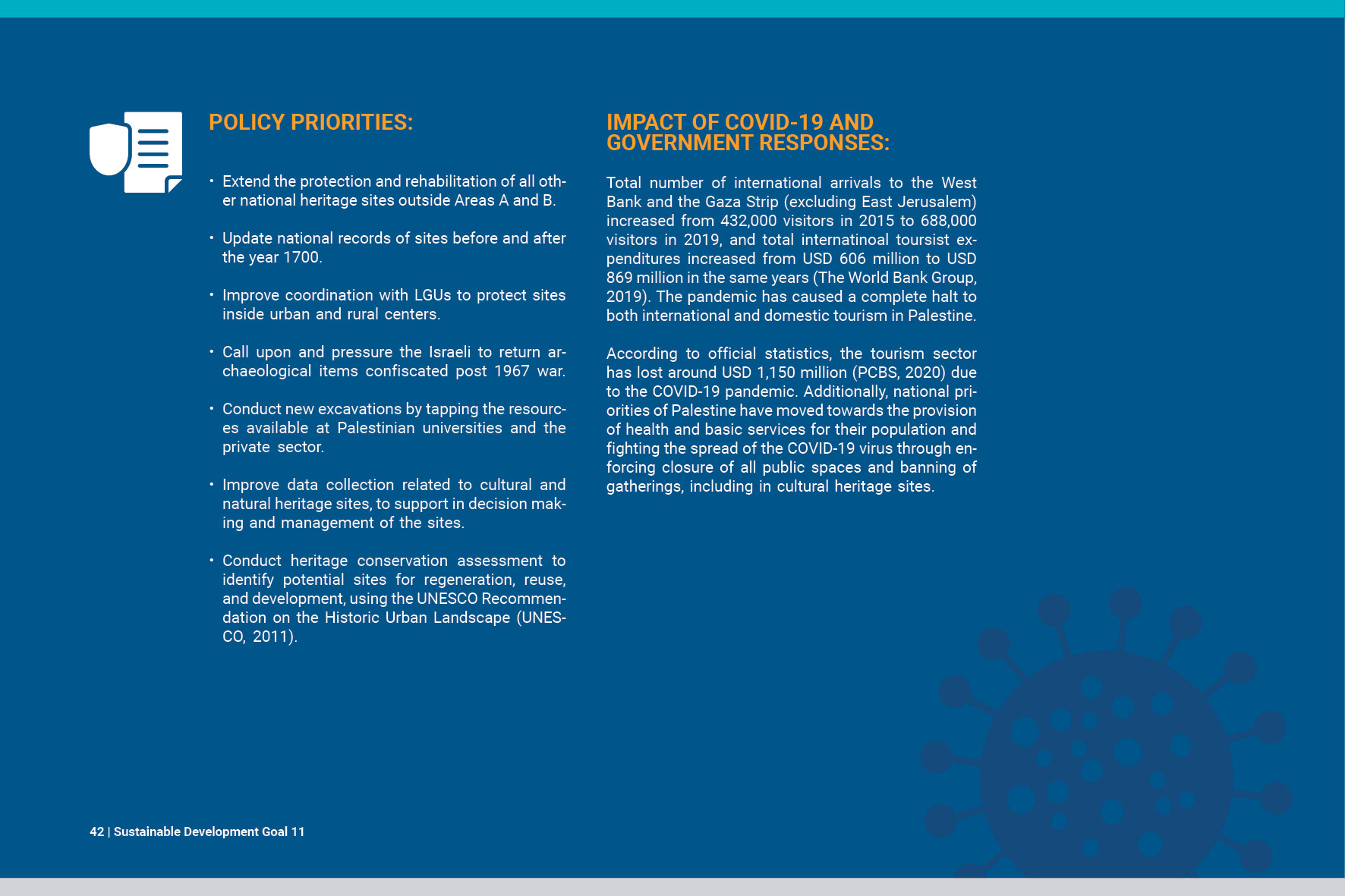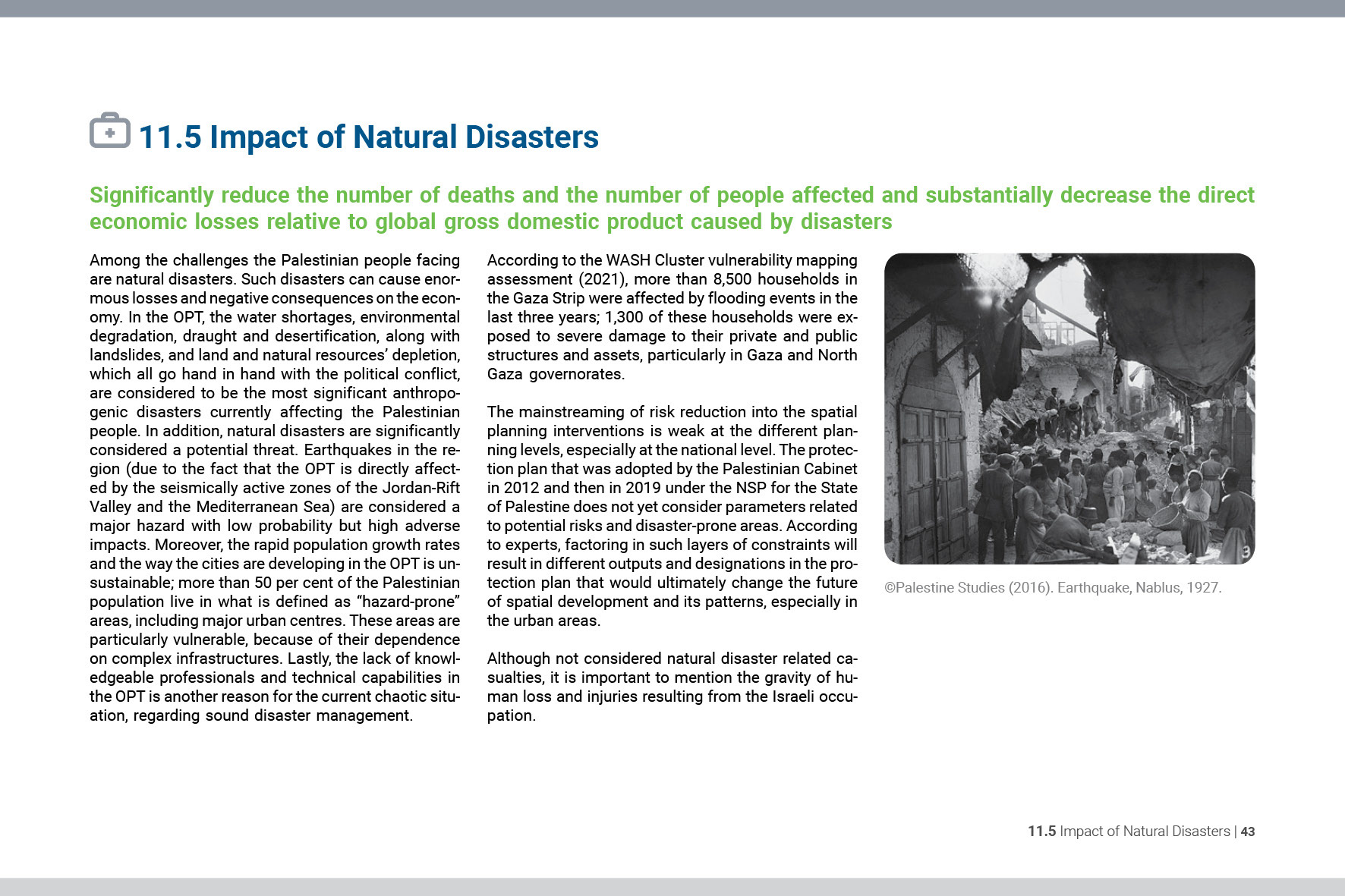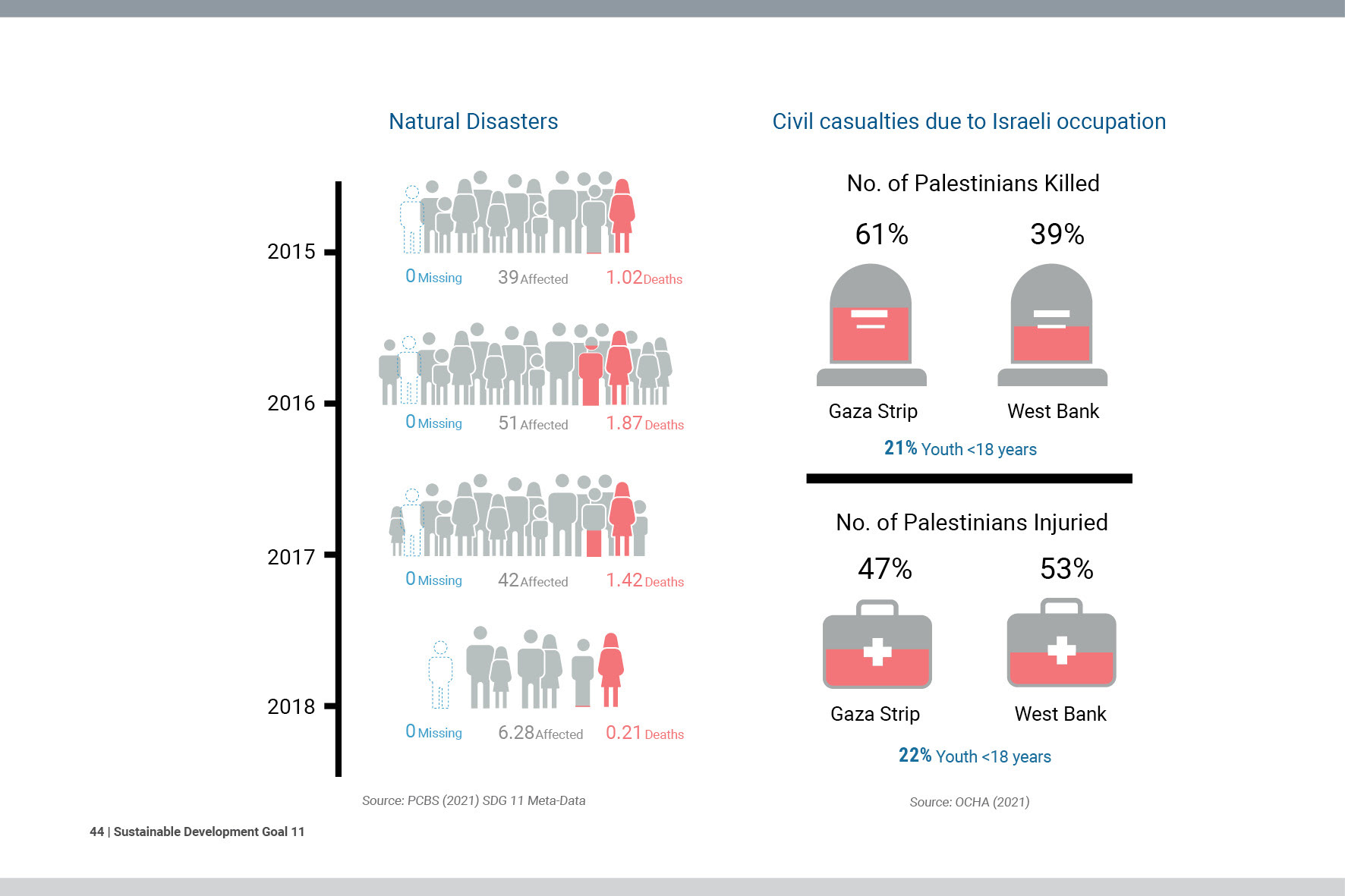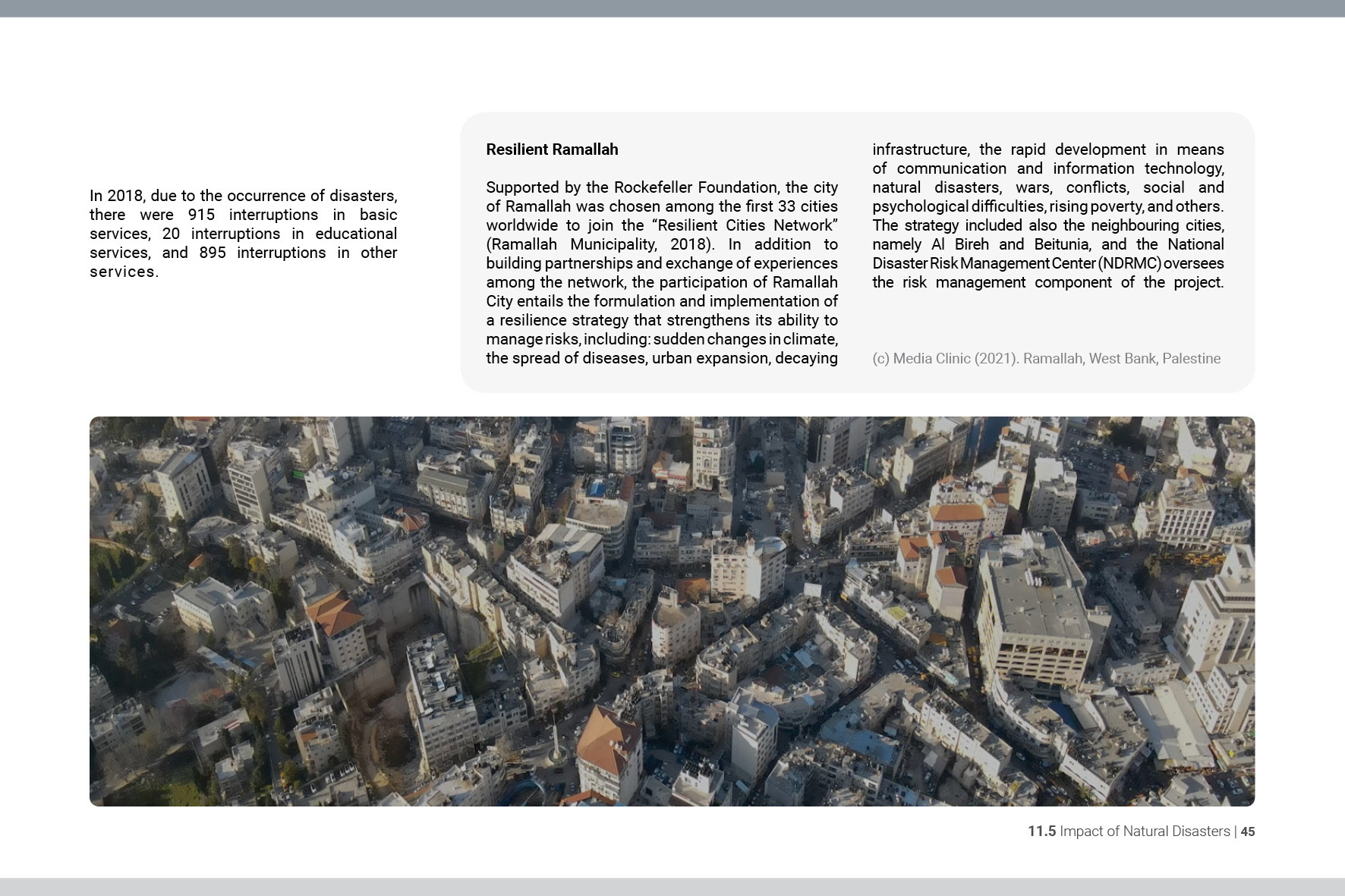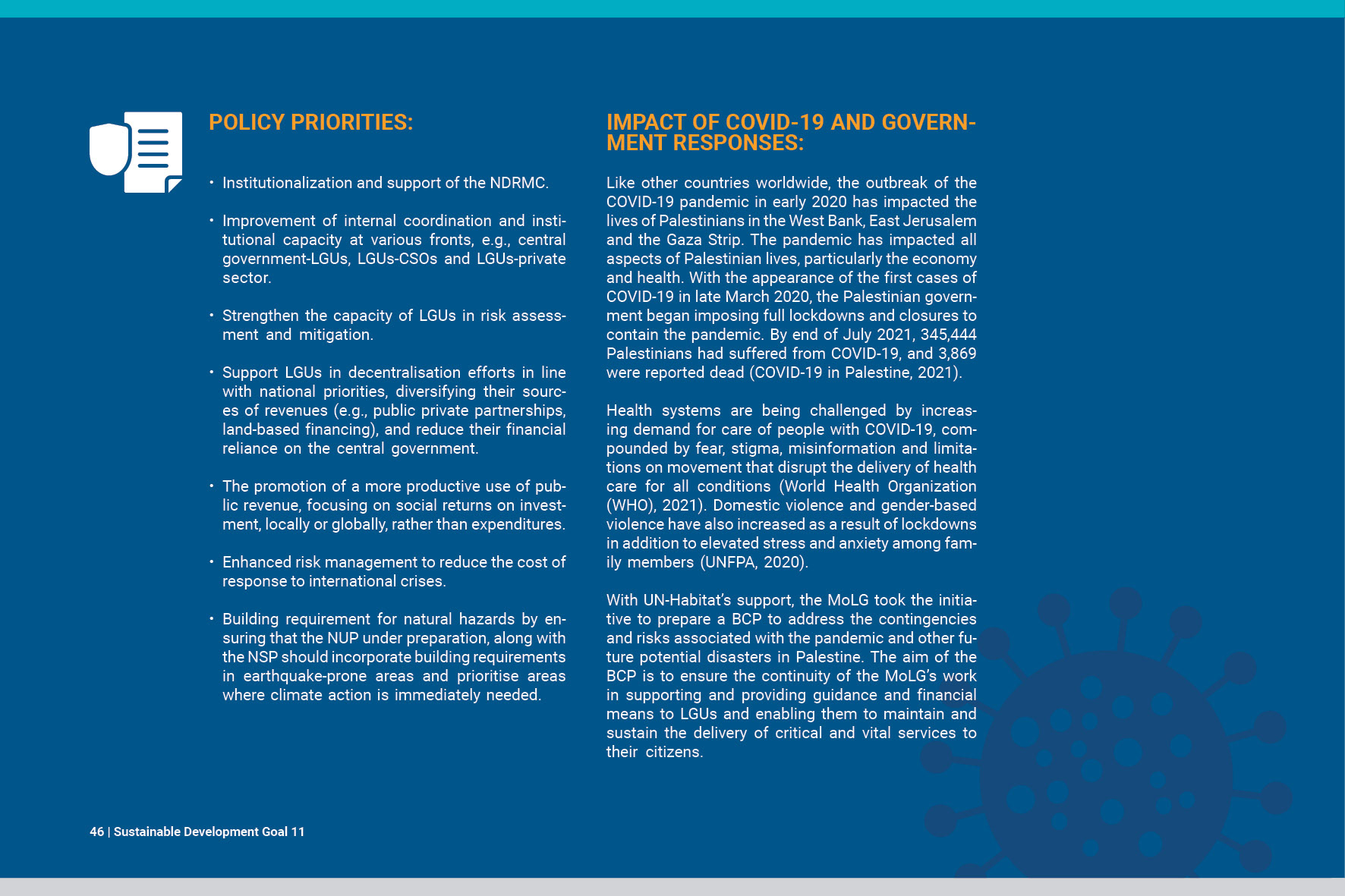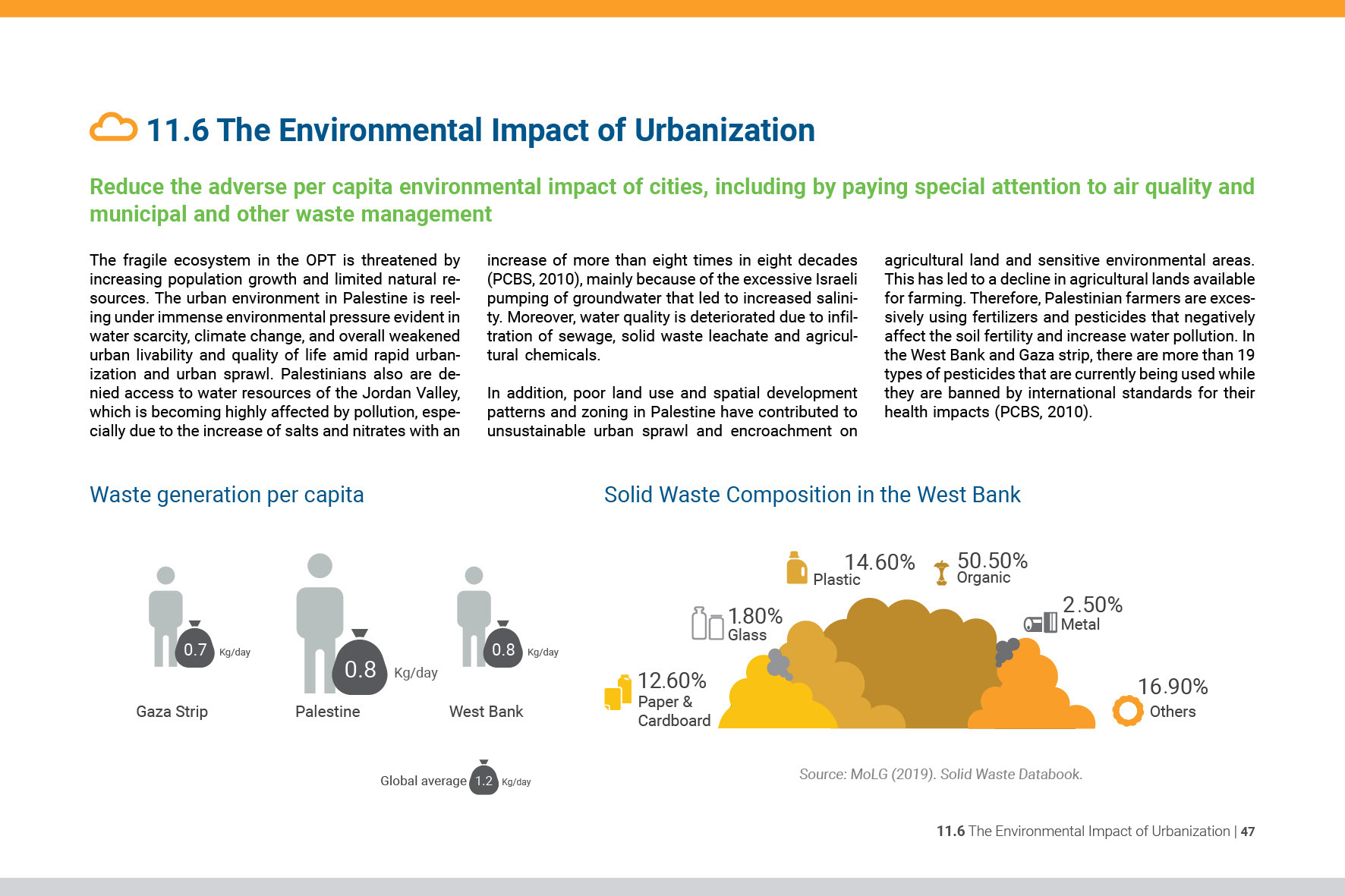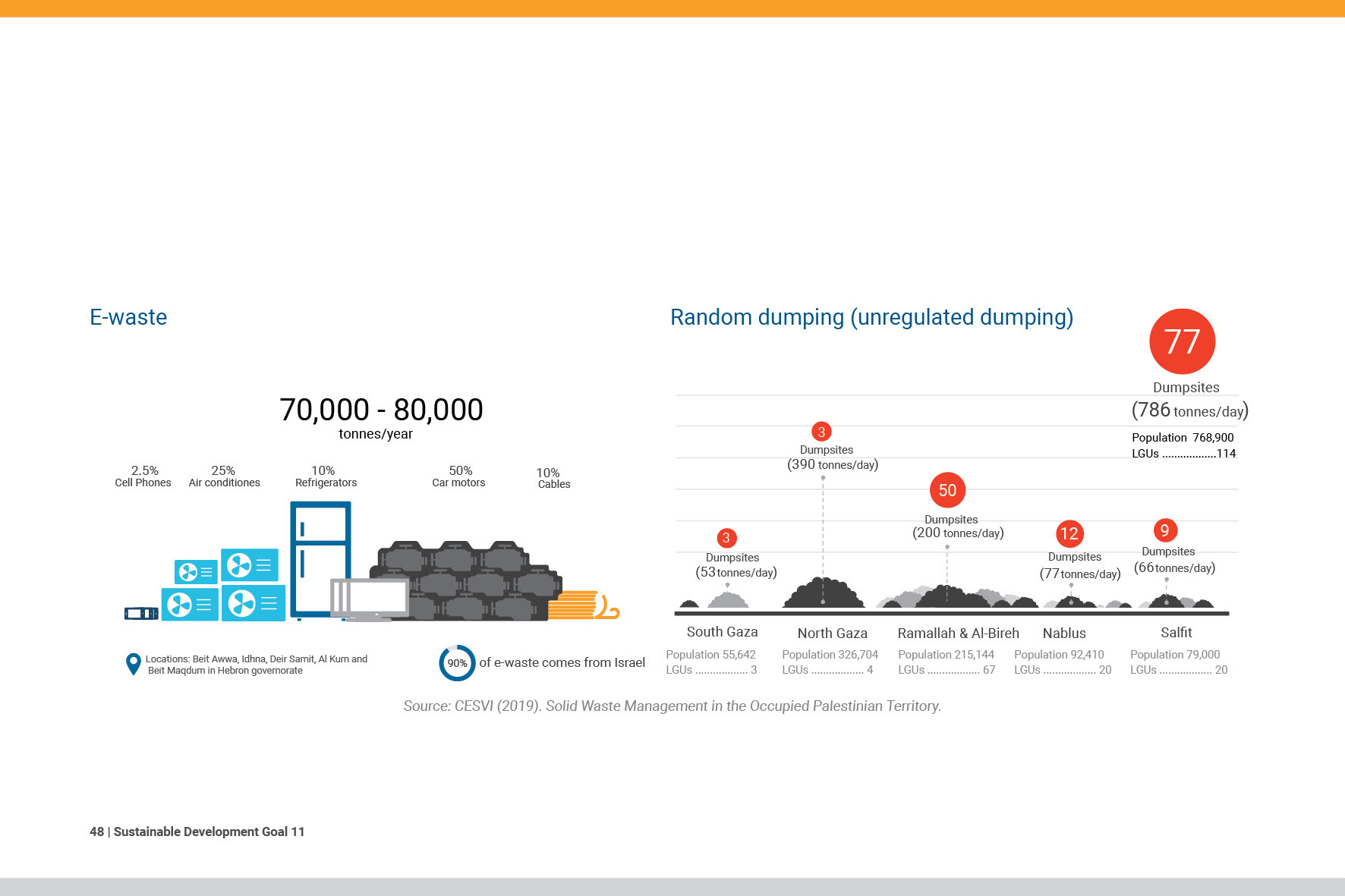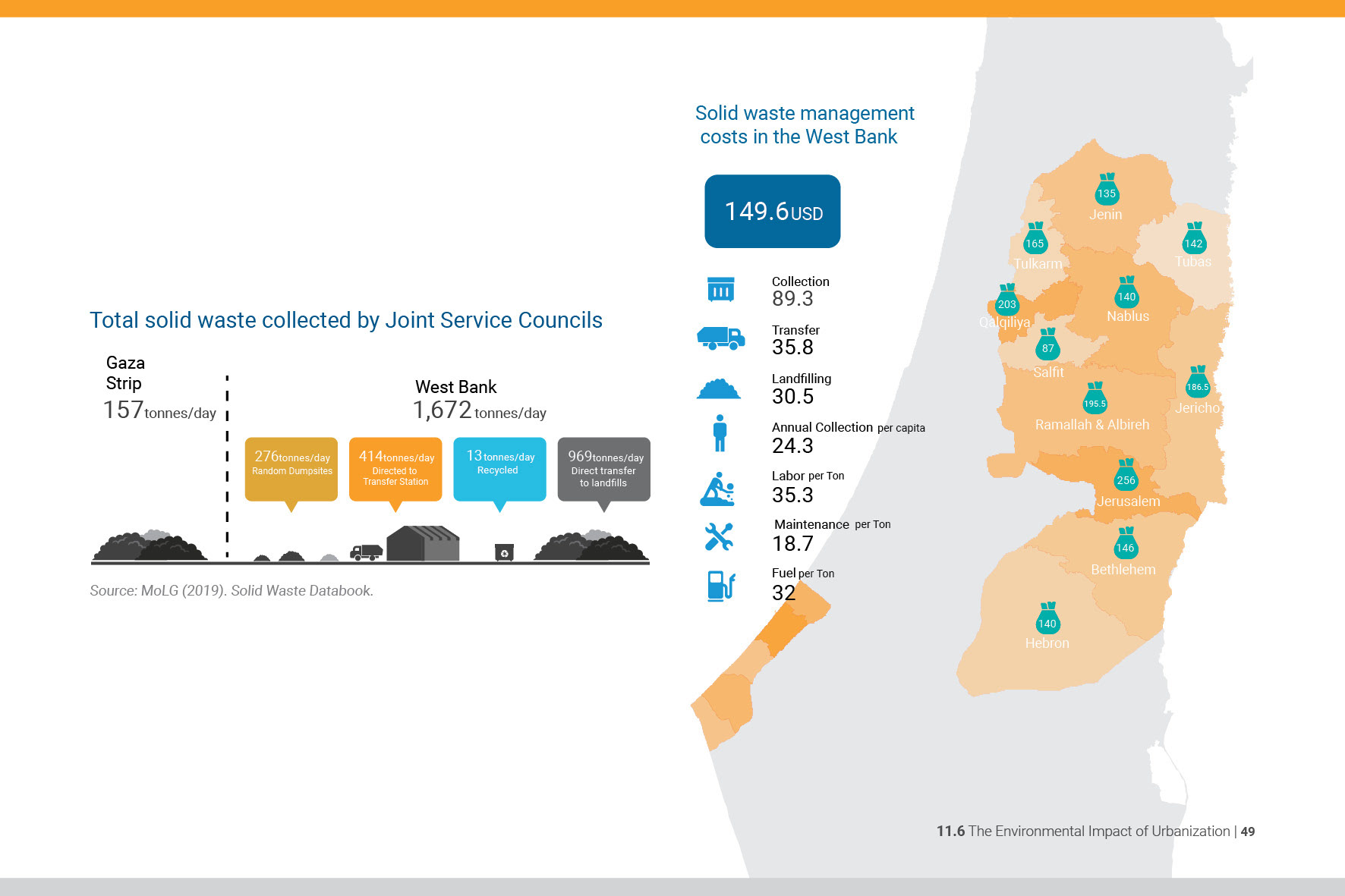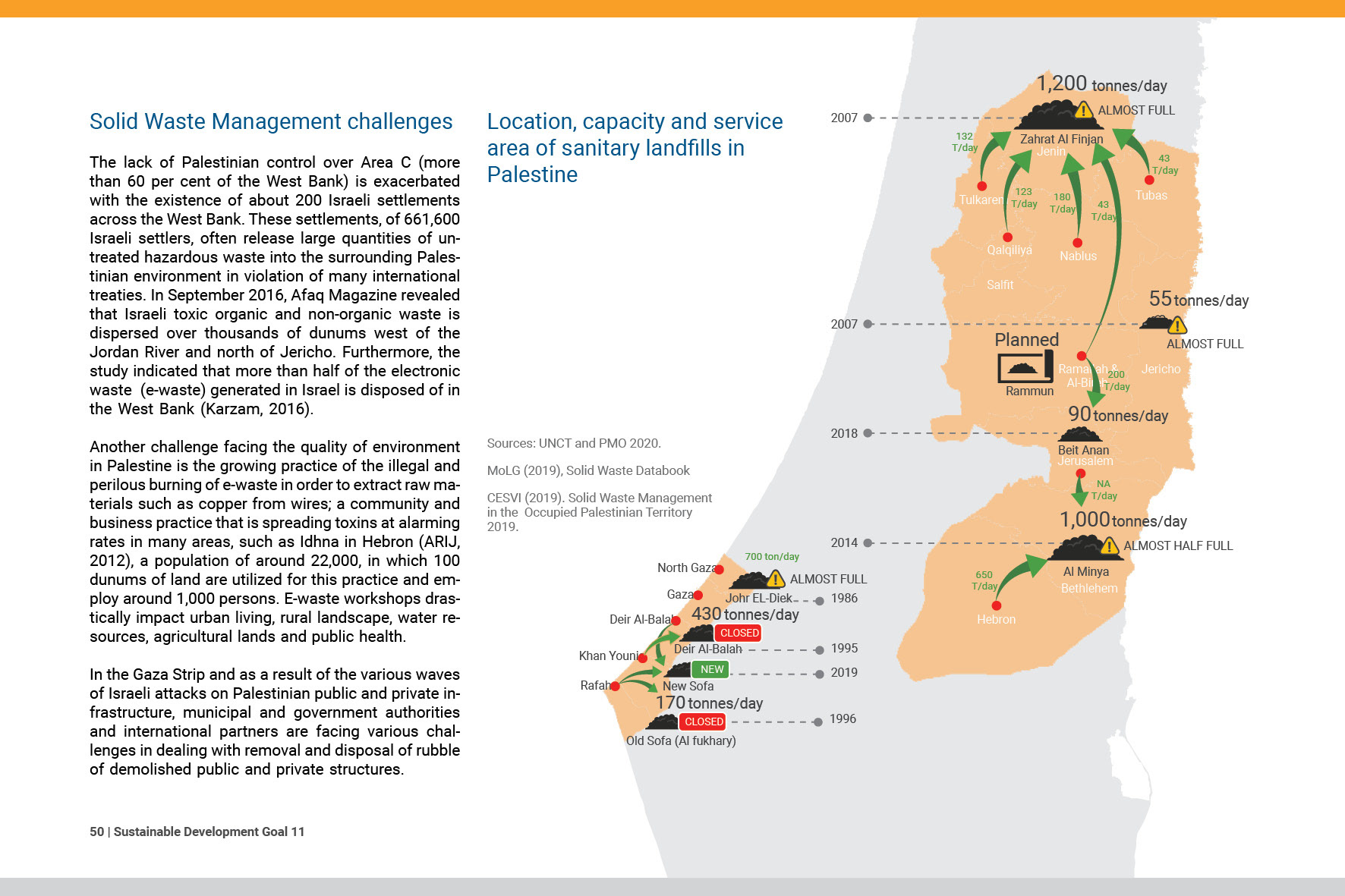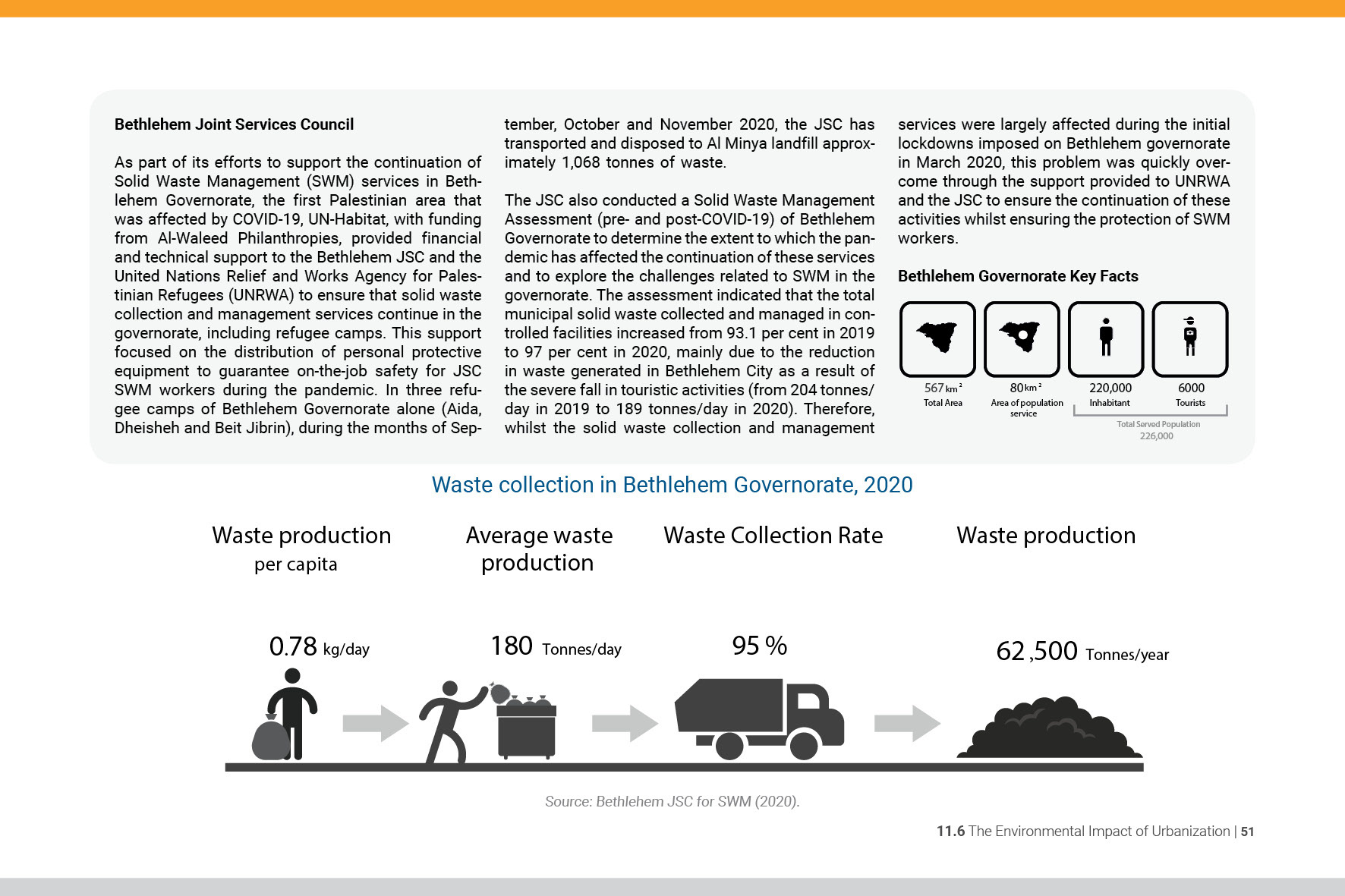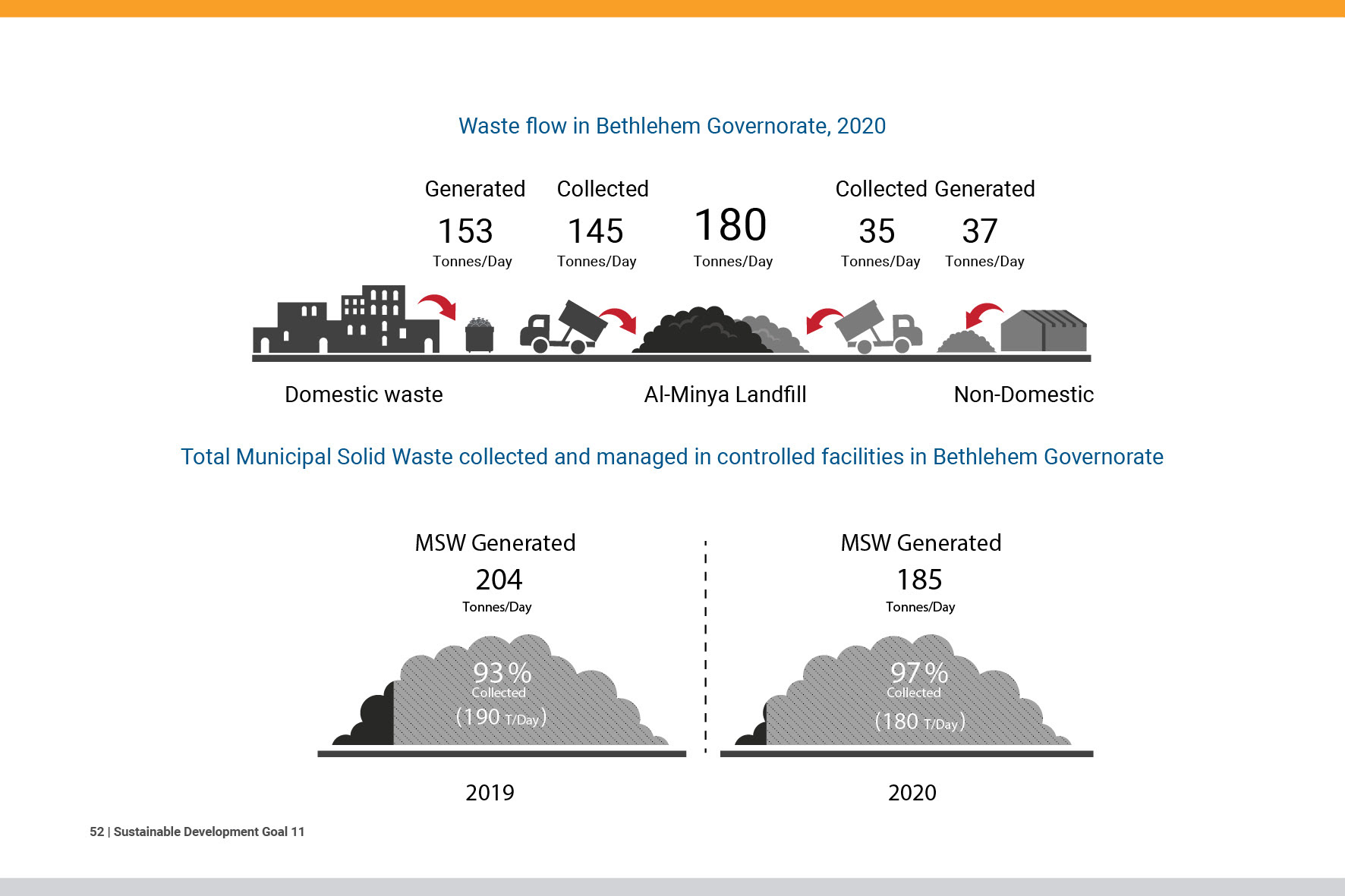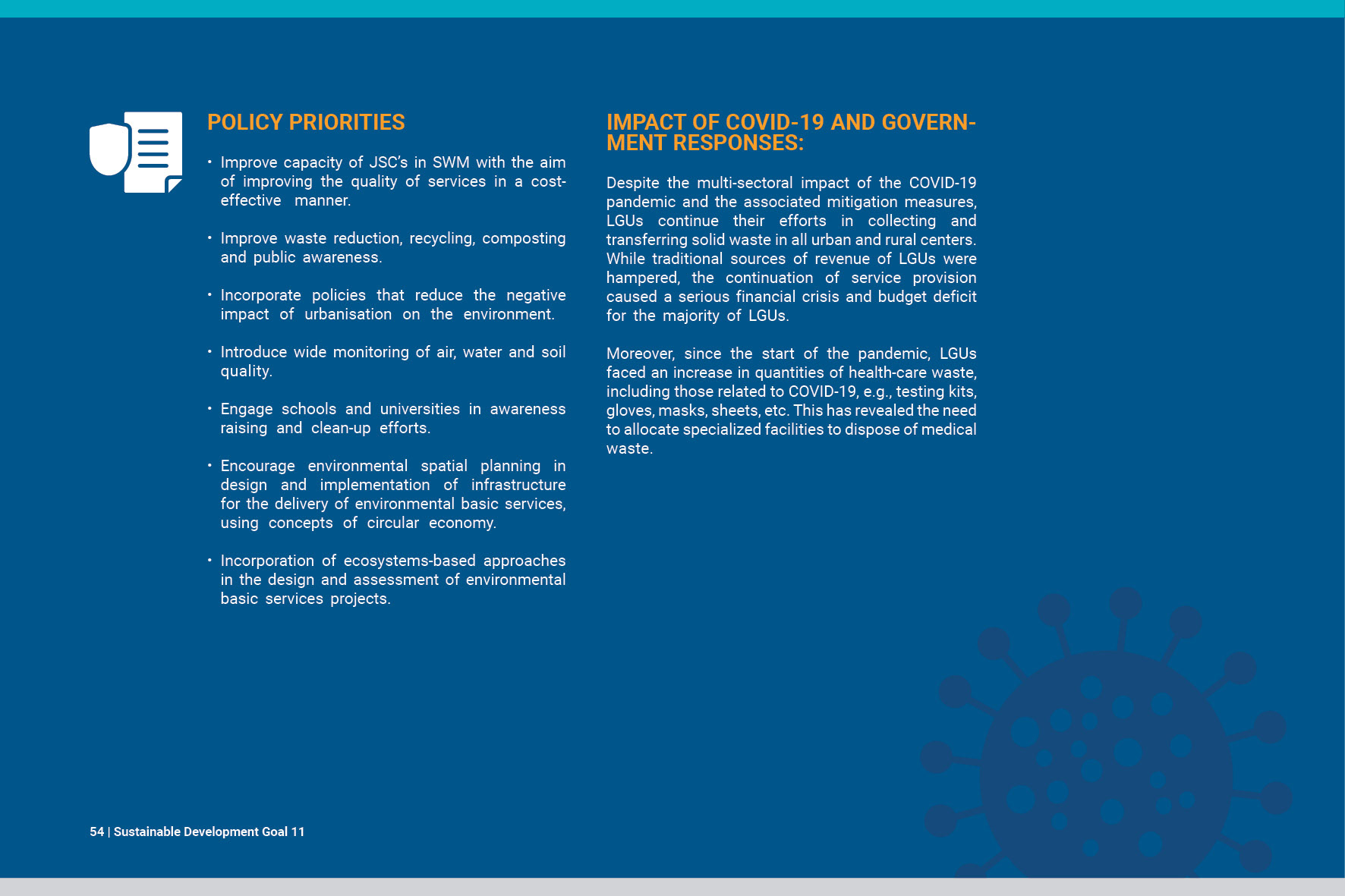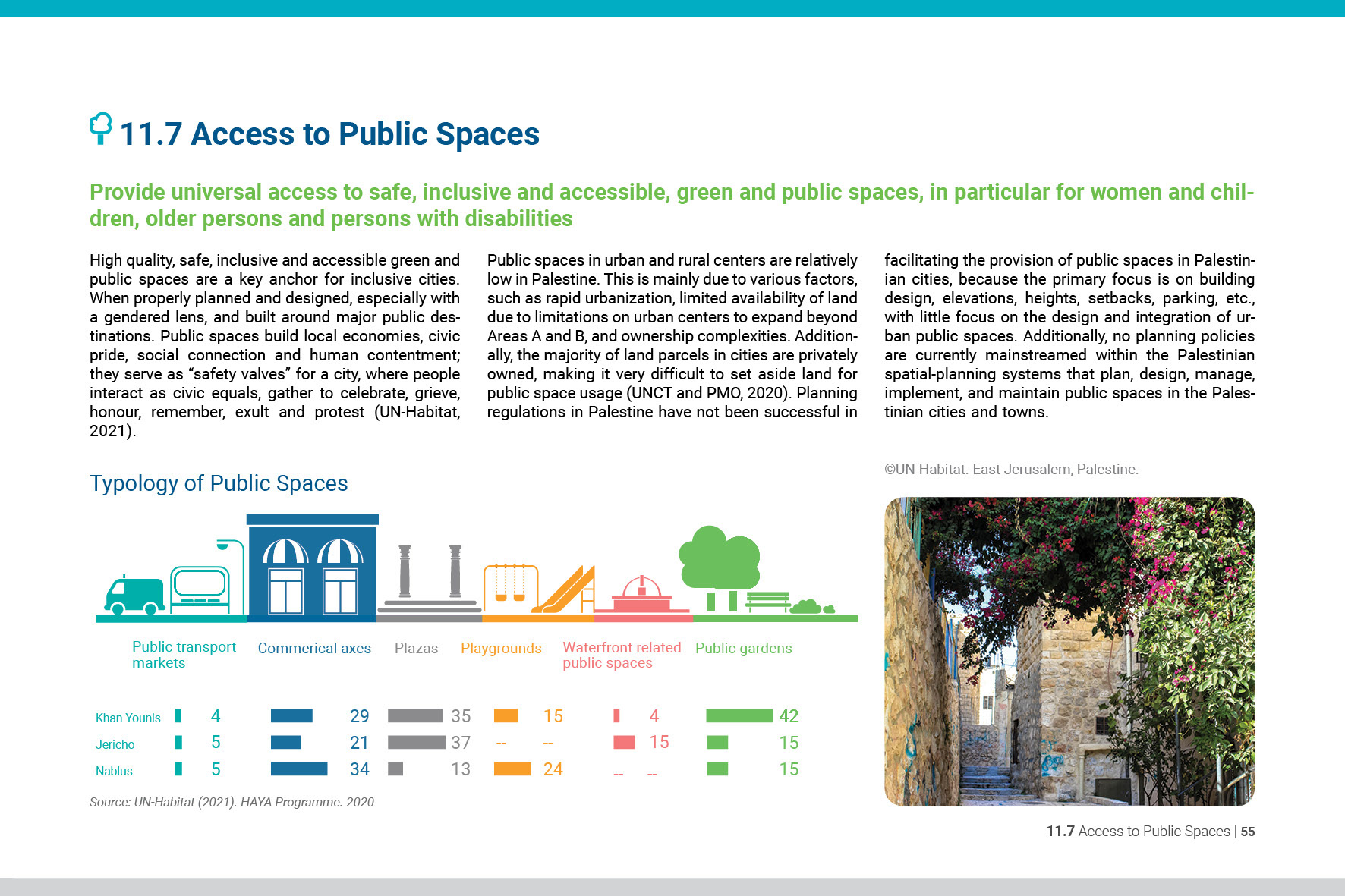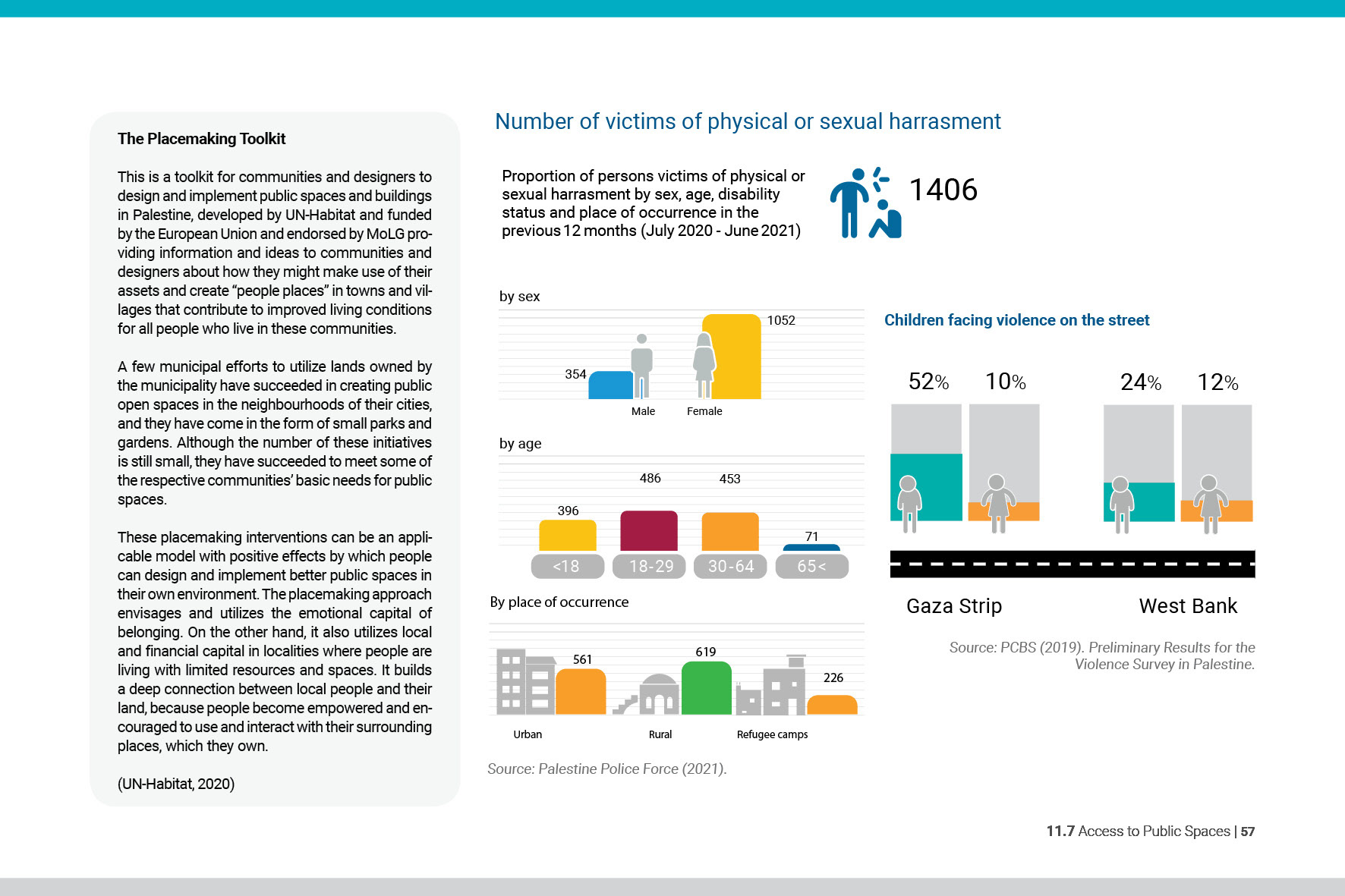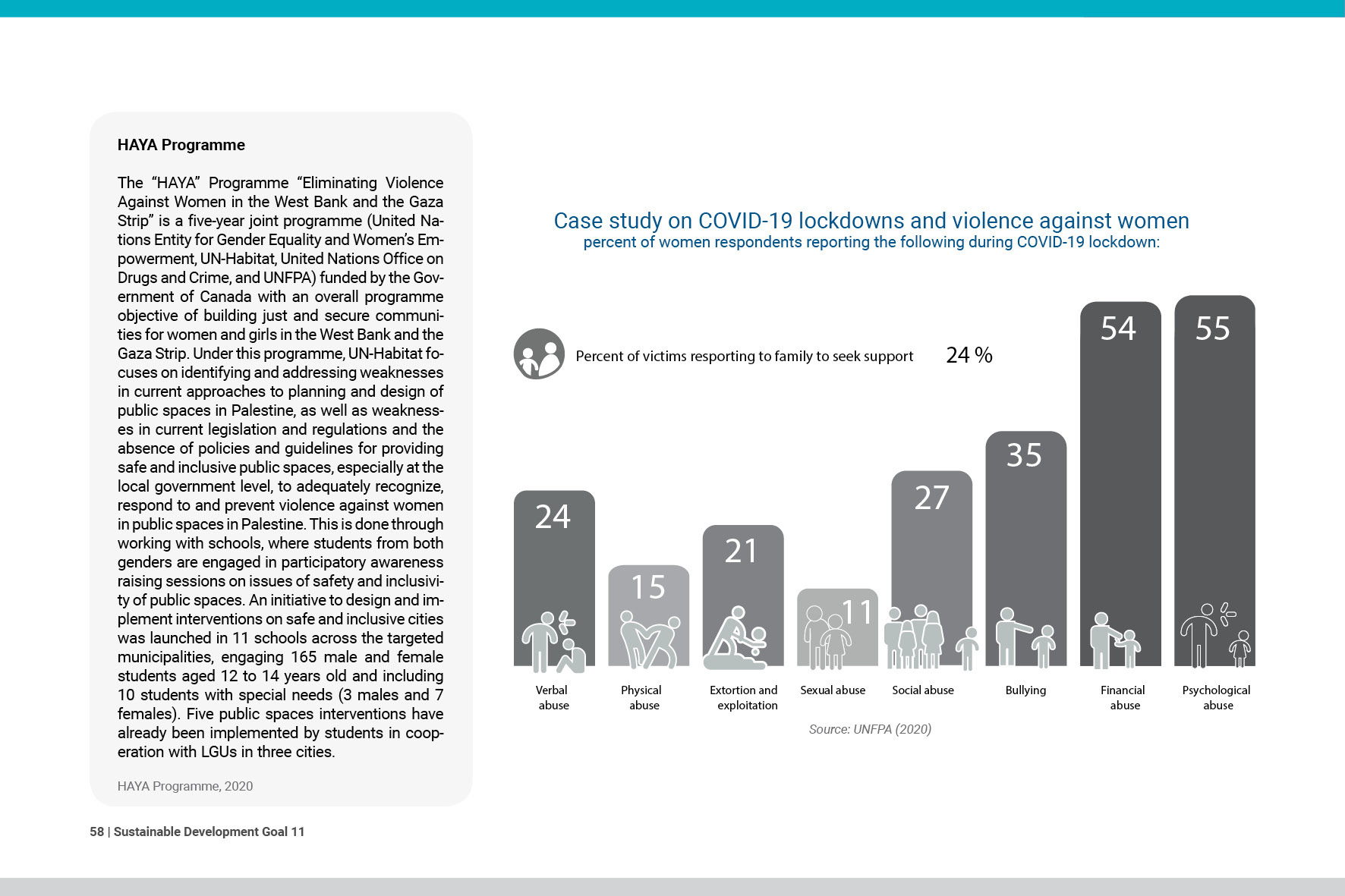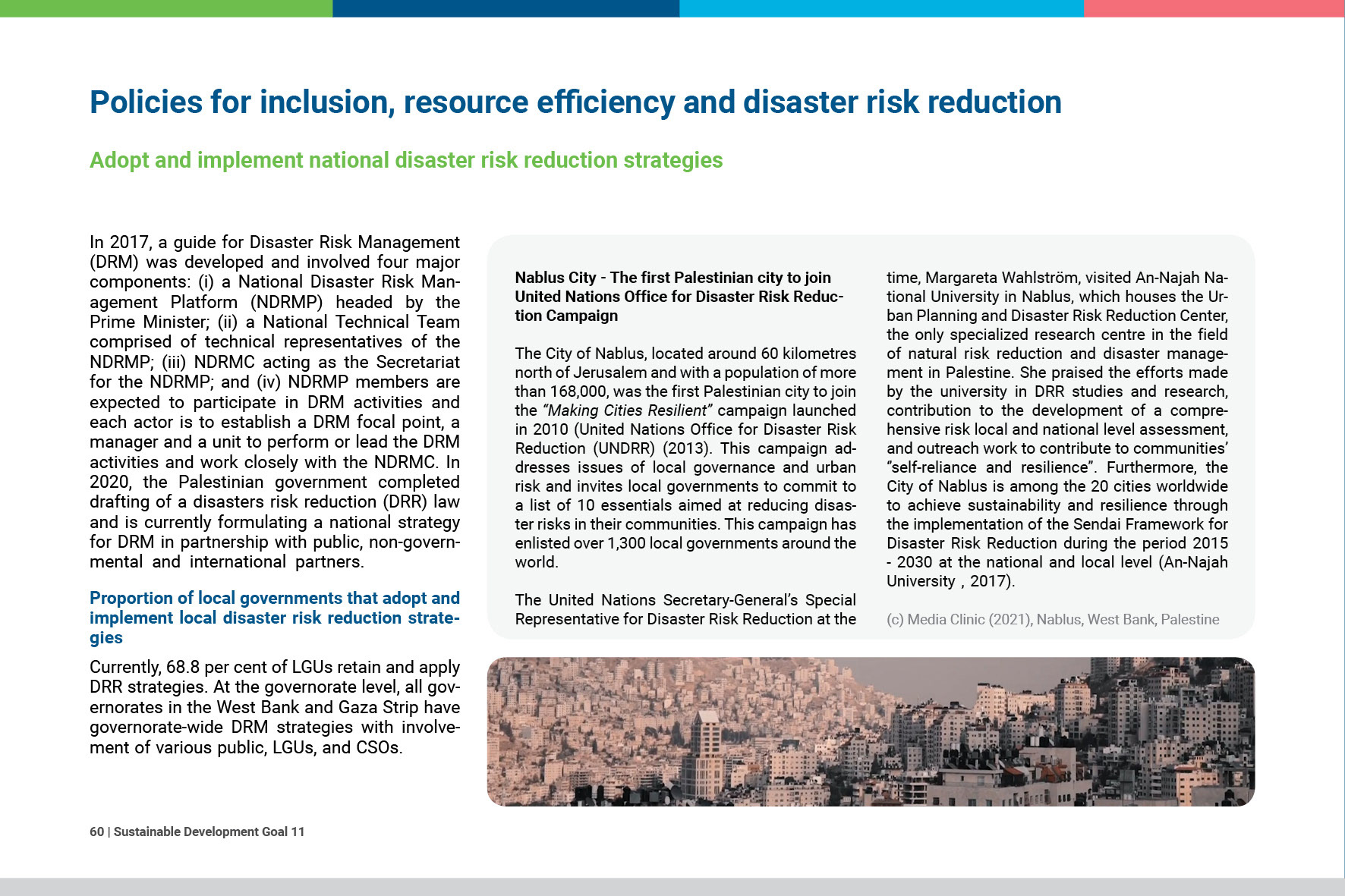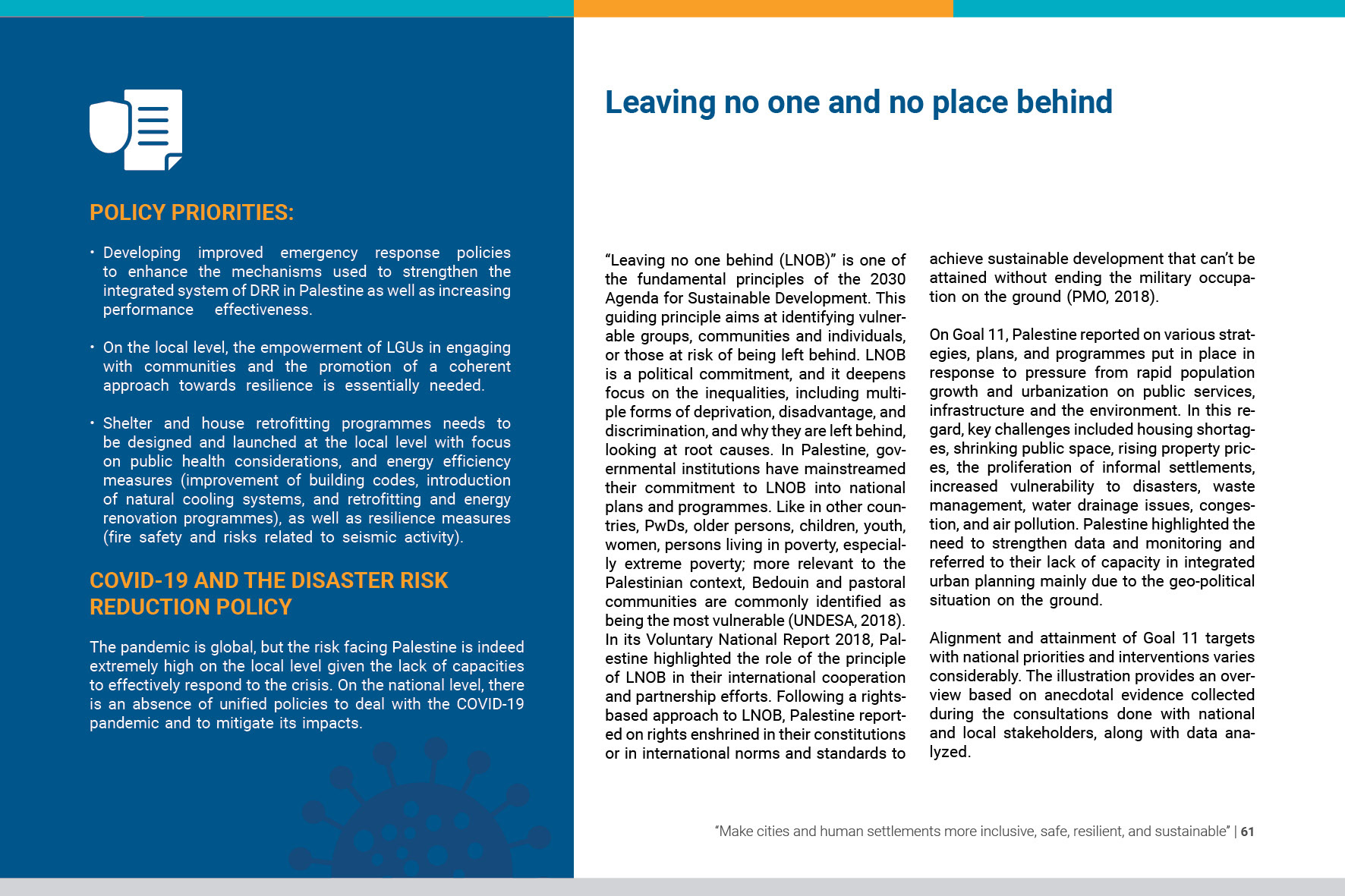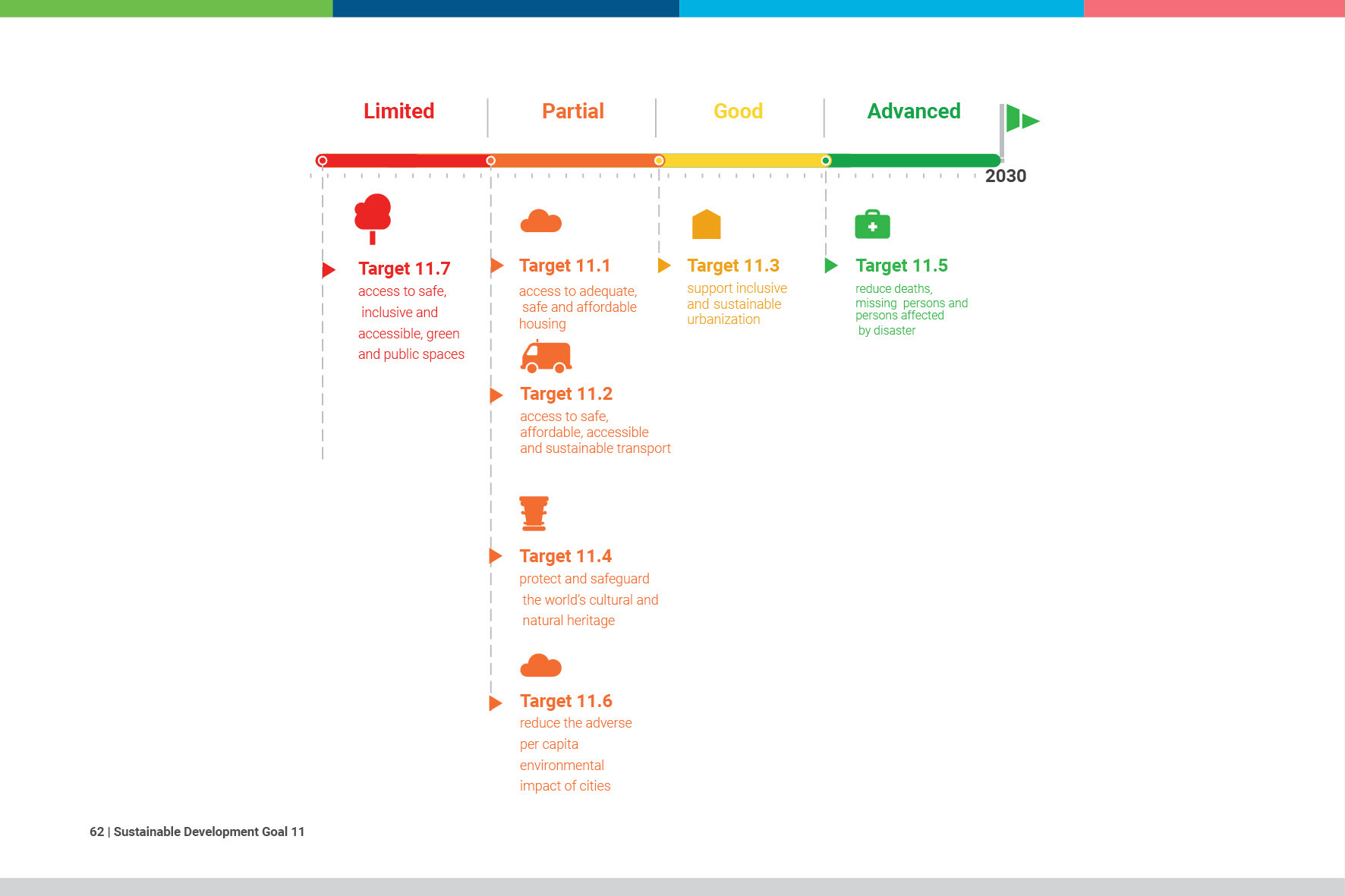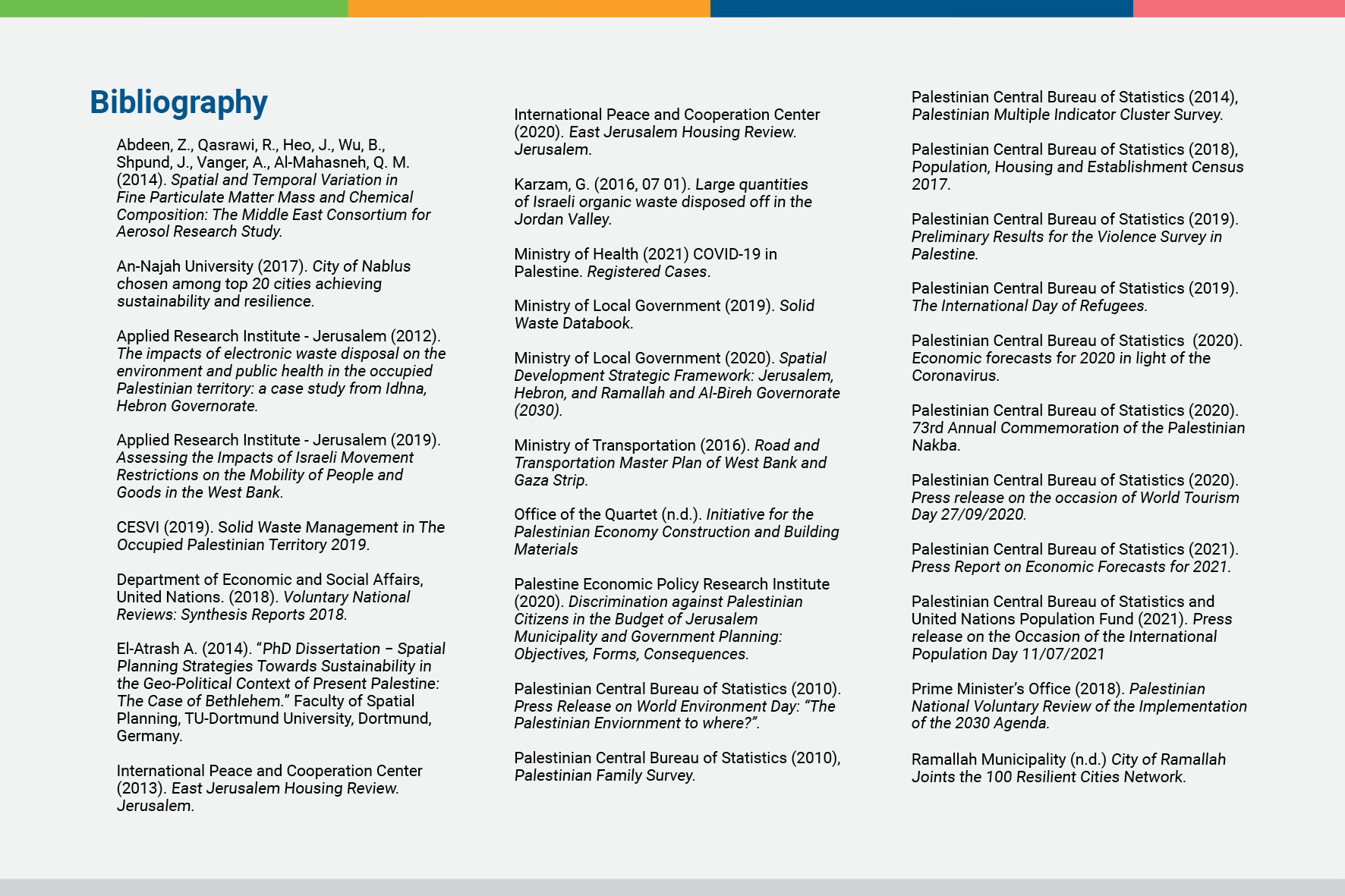Status Report on the Achievement of Goal 11 in Palestine
In 2015, the State of Palestine committed to the attainment of the Agenda for Sustainable Development by the year 2030 – a blueprint for achieving sustainable development through working towards the attainment of 17 Sustainable Development Goals (SDGs) as an urgent call for action that recognizes that the ending of poverty and other deprivations must go hand-in-hand with strategies that improve health and education, reduce inequality, and spur economic growth – all while tackling climate change and working to preserve the environment. The purpose of this Goal 11 Status Report is to report on progress towards Palestine’s achievement of Goal 11, which aims to Make Cities and Human Settlements Inclusive, Safe, Resilient and Sustainable.
The Goal 11 Status Report covers the period from 2015 until June 2021, changing variably depending on the available data for each target and/or indicator. It also captures the policy priorities of the Palestinian government and the impact of COVID-19 on the attainment of all targets and related indicators. The report aims to act as a tool for the public, policy makers as well as development actors involved in the urban development sector to share a common knowledge base and set a common agenda towards the advancement of Goal 11 in order to support the transformation into safer and more inclusive cities in Palestine.
The various protracted and latest political, health and socio-economic challenges caused an unprecedented fiscal crisis and simultaneously imperilled progress on Goal 11 and the other goals. This has made their achievement more urgent and necessary to transit from the humanitarian trap towards sustainable development while making sure to leave no one and no place behind.
The COVID-19 pandemic has shown that cities are at the forefront in the fight against the pandemic in addition to their importance in mitigating any future threats by building long-term societal, economic and environmental resilience against recurring natural and manmade catastrophes. Additionally, the Israeli escalations in the West Bank and Gaza Strip have further devastated the economy and reversed efforts that were made towards establishing a more sustainable urban environment in Palestine. It is estimated that the economic cost of violence as a percentage of Gross Domestic Product (GDP) in Palestine reached 13 per cent in 2018; depending on the stability (or lack, thereof) of the political situation, this figure is expected to be significantly higher in periods with intense escalations in conflict (United Nations Economic and Social Commission for Western Asia (ESCWA), 2021). However, and despite these challenges, the State of Palestine has made notable strides with regards to fostering people-centred planning and integrated national and sub-national spatial policies in addition to supporting the local government sector to improve citizens’ engagement and representation.
The Palestinian government’s National Development Plan (NDP) 2021-2023 and its priorities are directedly aligned with Goal 11. The NDP’s priorities are also reflected in the Palestinian governments’ sector strategies for local government, housing and public works, transportation, environment, land, culture, youth and gender equality.
The Goal 11 Status Report was prepared in participation of various government, municipal, and national and international non-governmental organisations. Report preparation and all meetings and consultations conducted were supervised by the Ministry of Local Government (MoLG).
The report covers 10 targets and 15 related indicators which fall under Goal 11; the majority of which were measured at the local level and progress reported at the national level. The report also lists the policy priorities of the Palestinian government for the upcoming period, which are based on the results and the needed policy change, and are crucial to advance the attainment of Goal 11 by the year 2030.
Infographics design: Basel Nasr
Layout Design: Dennis Sobeh

